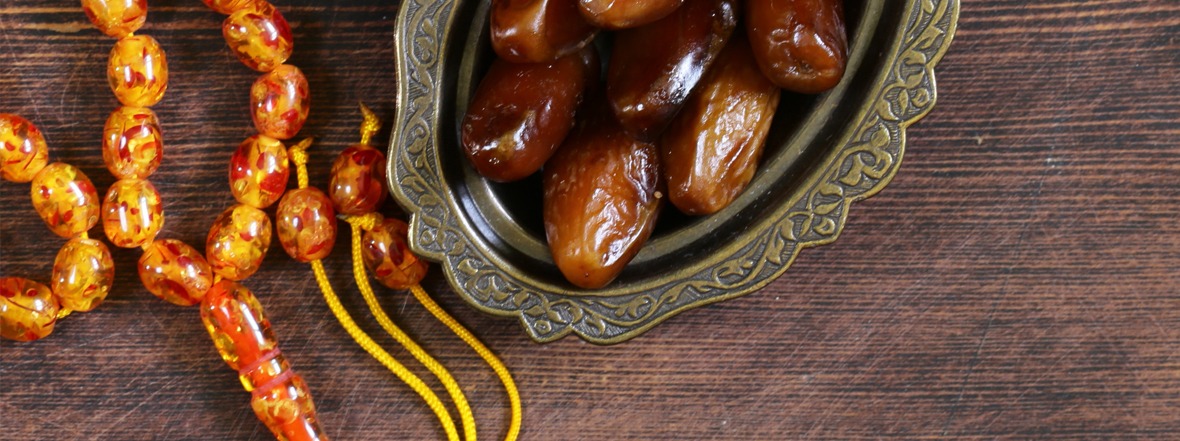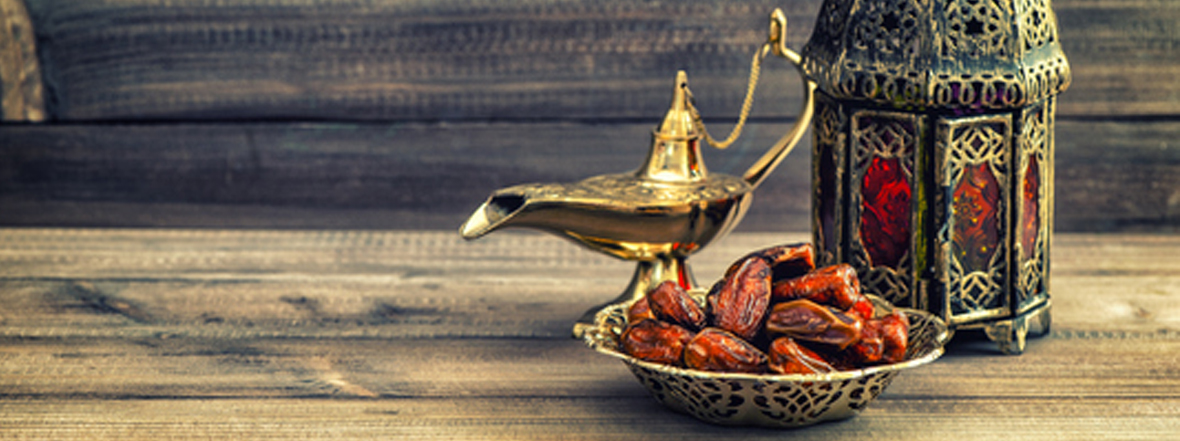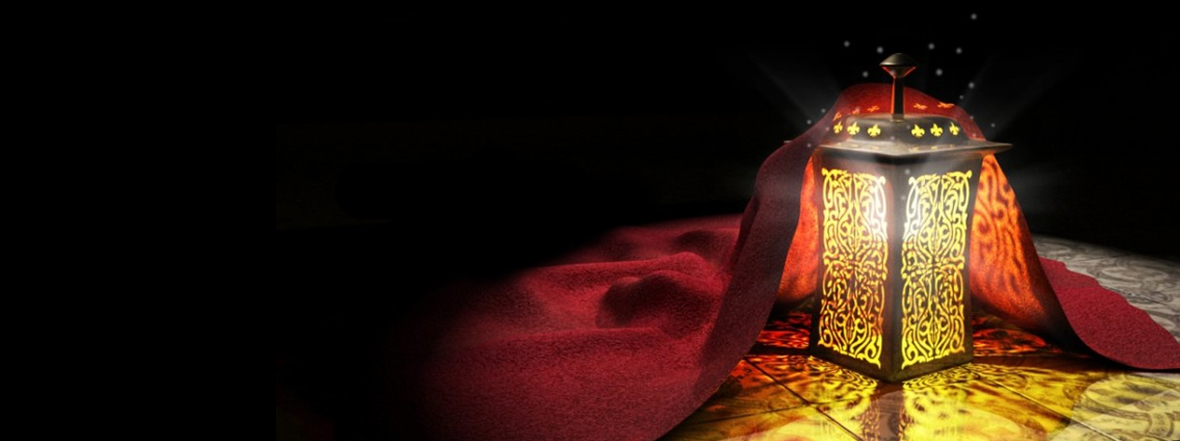Ramaḍān is indeed a month in which every soul yearns to connect with their Creator. As the Qur’ān states; ‘And remind, for indeed, the reminder benefits the believers.’ These reminders aim to present a reminder in a graphical form which can be appreciated by all, followed by a short excerpt from a book relevant to the reminder in order to shed light.

You try again to redirect the boat – no use.
You look for the lifeboat – it’s gone.
You reach for a life jacket – torn.
There’s something completely unique about this moment. You experience something you otherwise could only theorise about: true tawḥīd.
See, on shore, you may have called on God. But you called Him along with others. You may have depended on God but you depended on Him along with others. But for this singular moment, everything else is closed. There is nothing left to call on. Nothing left to depend on, but Him.
Do you ever wonder why when you’re most in need, every door you seek of the creation remains closed? You knock on one, it’s slammed shut. So, you go to another, it’s also shut. You go from door to door, knocking, pounding on each one, but nothing happens. Even those doors you once depended on, suddenly shut. Why?
See, us humans have certain qualities which God knows well. We are constantly in a state of need. We are weak. We are also hasty and impatient. When we are in trouble, we will be pushed to seek assistance. That’s the design. Why would we seek shelter if it’s sunny and the weather is nice? When do we seek refuge? It is when the storm hits. So, Allāh sends the storm, He makes the need through a created situation so that we will be driven to seek shelter.
It is never easy to stand when the storm hits, that’s exactly the point. By sending the wind, Allāh brings us to our knees: the perfect position to pray.
[Reclaim your heart, Yasmin Mogahed]

There was once a king who saw in a dream that all his teeth had fallen out. He called a dream-interpreter, told him what he saw in the dream, and asked him to interpret it. When the interpreter heard the dream, his complexion changed and he began to repeat, “Allāh’s refuge is sought! Allāh’s refuge is sought!” The king became worried and asked, “What is the interpretation of my dream?” The interpreter said, “After many years pass, your wife and children will die and you will be all alone in your kingdom!” The king screamed, became furious, and began to hurl abuses and insults. He then ordered that the interpreter be imprisoned and called another interpreter, related to him what he saw in the dream and asked him for its interpretation. The dream-interpreter smiled and said, “Glad tidings, dear king!” The king said, “What is the interpretation of the dream?” The interpreter said, “It means that you will live for very long – so long that you will be the last of your family to die, and you will remain a king your entire life.” The king became very pleased, showered him with gifts and remained content with him whilst angry with the first dream-interpreter.
If you contemplate, you will realise that both of the interpretations were the same, the difference was in the way in which the interpretation was conveyed. Hence, the tongue is the master.
A person may utter a callous word that displeases Allāh for which He will be angry with him until the day He meets him. This is why the Prophet ﷺ warned people regarding not controlling the tongue as it may lead to one’s own destruction.
The Prophet ﷺ said, “When the son of Ādam wakes up in the morning, all of his body parts humble themselves in front of the tongue and say, ‘Fear Allāh for our sake! Our wellbeing depends on you. If you remain upright, so shall we. If you become crooked so shall we.'”
(Aḥmad, Tirmidhī)
Ibn al-Jawzī رحمه الله said, “It is amazing how many people are strong enough to abstain from consuming unlawful wealth, fornication and theft and yet you are unable to abstain from moving their tongues. You will see such people speaking ill of others and unable to prevent themselves from doing so.”
Use the various modes of speech that would move people’s emotions. Speak to your mother in a soft tone and by using the most beautiful words, and the same goes to your father, husband/wife, children and colleagues. Speaking in this manner would not cost you anything but would enchant those you speak to and get rid of any ill feelings they may have for you.
Animals have long tongues, yet they cannot speak, Man had a relatively short tongue, yet he cannot keep silent.
[Enjoy your life, Dr. Muḥammad ʿAbdur-Raḥmān Al-ʿArīfī]

[17:82]
The Qur’ān cures hearts and delivers people from shirk and kufr, low morals and spiritual ailments is no secret. The entire Muslim Ummah agrees with it. According to some ʿUlamā, the way the Qur’ān is a cure for spiritual ailments, it is also a cure for physical diseases. Ḥadīth narratives bear testimony to it.
The Ḥadīth of Abū Saʿīd al-Khuḍrī رضي الله عنه can be seen in all books of aḥādīth. A group of Companions رضي الله عنهم were in travel. In a village on their way, a scorpion had bitten the chief. The village people asked the Companions رضي الله عنهم if they could suggest some treatment for it. They recited the Sūrah Fātiḥah seven times, blew their breath on him and the ailing patient stood cured. Later, when this incident was mentioned before the Prophet ﷺ, the Prophet ﷺ declared this action of the Companions رضي الله عنهم to be permissible.
Similarly, there are several other Ḥadīth reports which prove that the Prophet ﷺ has done it himself. After having recited the last two verses of the Qur’ān, he would blow his breath on the sick person. It is also proved that the Ṣaḥābah رضي الله عنهم and the Tābiʿīn رحمهم الله used to treat sick people with the recital of the last two verses of the Qur’ān as well as with the recital of other verses from it.
Imām Qurṭubī رحمه الله tells us that the Qur’ān – when recited with faith and reverence – is certainly a cure. It is open. It is proven. Any denial of the Qur’ān, or irreverence to it, could also become a source of loss and misfortunes.
[Maʿāriful Qur’ān, Volume 5, Page 542-543]

A man doesn’t have to be an intentional liar to be a liar, however, it is sufficient for a man to end up lying and become a liar by simply repeating everything he hears.
For example, in a day, we hear 100 things.
10 of them may be truths.
20 may be misconceptions.
20 may be exaggerations.
50 could be total lies.
If a person repeats every one of them, he has only repeated 50 lies, 20 misconceptions, 20 exaggerations and only 10 truths. So, for a man to be a liar, it is sufficient for him to repeat everything he has heard, this is the ḥadīth of Rasūlullāh ﷺ.
We receive so much information, gossip, calls, texts, IM, people forwarding things all the time. Sometimes it’s frivolous, meaningless, trivial, sometimes serious. Warnings which nobody bothers checking, but if they were to check, it was issued 7 years ago and still being circulated – falsehood.
Before social media and instant messaging, what we would hear in person, that in itself was bad enough as Allāh references this in multiple places in the Qurʿān. We hear so many things all the time and most is gossip, innuendos, insinuations, exaggerations, misconceptions and only part of it is true. We have to be very careful especially when it affects people’s livelihood, honour and dignity. When it comes to rumours and gossip, it is so harmful and detrimental.
Not everything which interests the public is in the public’s interest. We should disregard it as it doesn’t concern us.
[Shaykh Riyāḍ-ul-Ḥaqq]
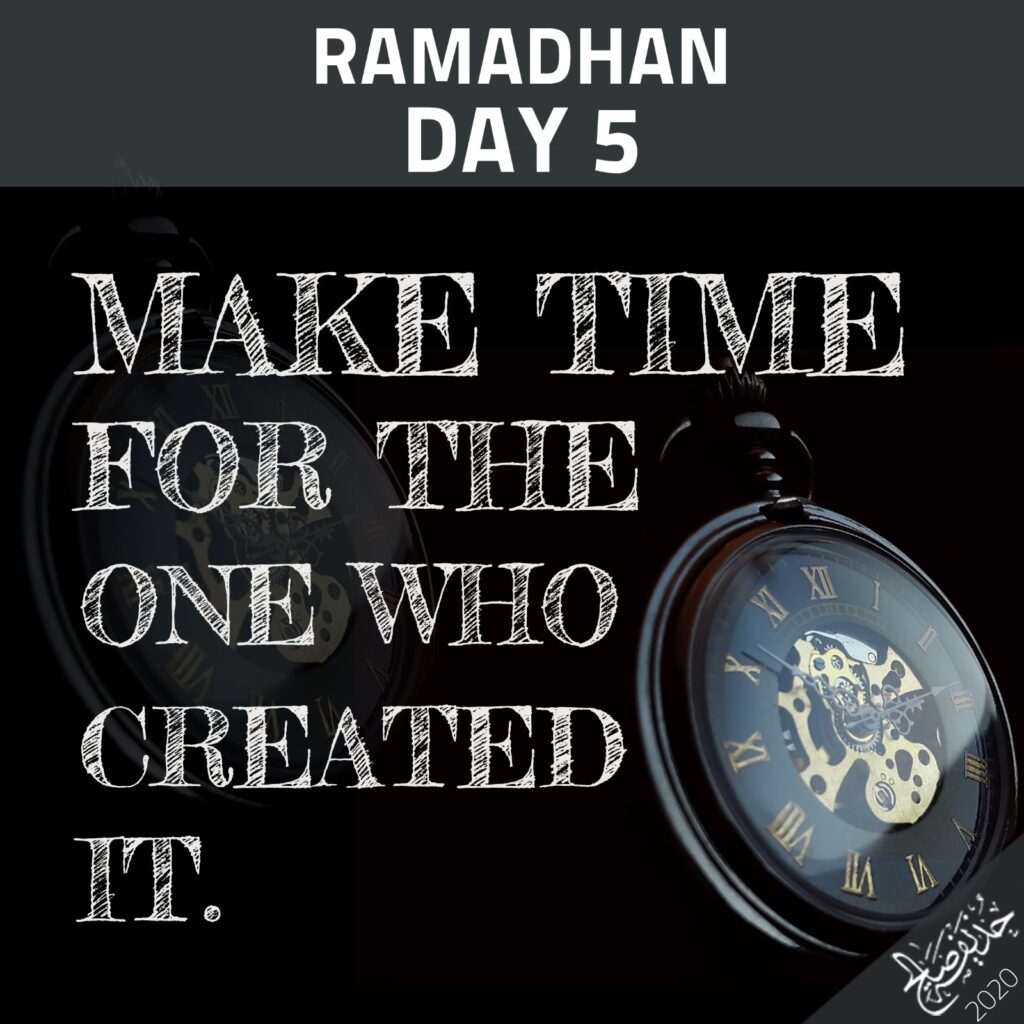
Sayyidnā ʿUbaidullāh Ibn Ḥiṣn رضي الله عنه reports that whenever two Companions of the Prophet ﷺ met, they would not part company until one of them had recited Sūrah ʿAṣr in its entirety to the other.
[Ṭabarānī]
Imām Shāfiʿī رحمه الله says that if people thought about Surah ʿAṣr carefully, it would be enough for their guidance. It is a concise but comprehensive Sūrah, which in three verses, outlines a complete way of human life based on the Islamic worldview.
In this Sūrah, Allāh swears an oath by the ‘Time’ and says that mankind is in a state of loss; exception, however, is made of people who are characterised by four qualities:
[1] Faith
[2] Righteous deeds
[3] Advising each other for truth
[4] Advising each other for patience.
This is the only path to salvation in this world, as well as in the next world.
The point we need to analyse here is the relationship between the ‘oath of time’ and ‘its subject’ because there needs to be a relationship between an ‘oath’ and its ‘subject’.
The commentators, generally, state that all conditions of man, his growth and development, his movements, his actions and morality – all take place within the space of ‘Time’. Man will lose the capital of his existence. Hours, days, months, and years of life pass quickly, spiritual and material potentialities decline, and abilities fade. Man is like a person who possesses great capital and, without his permission and will, every day, a portion of that capital is taken away. This is the nature of life in this world; the nature of continual loss.
How well this has been put poetically:
حياتك أنفاس تعد فكلما مضى نفس منها انتقصت به جزءا
“Your life comprises a few breaths that can be counted; when one of them is sent out, a part of your life has diminished.”
[Maʿāriful Qur’ān, Volume 8]
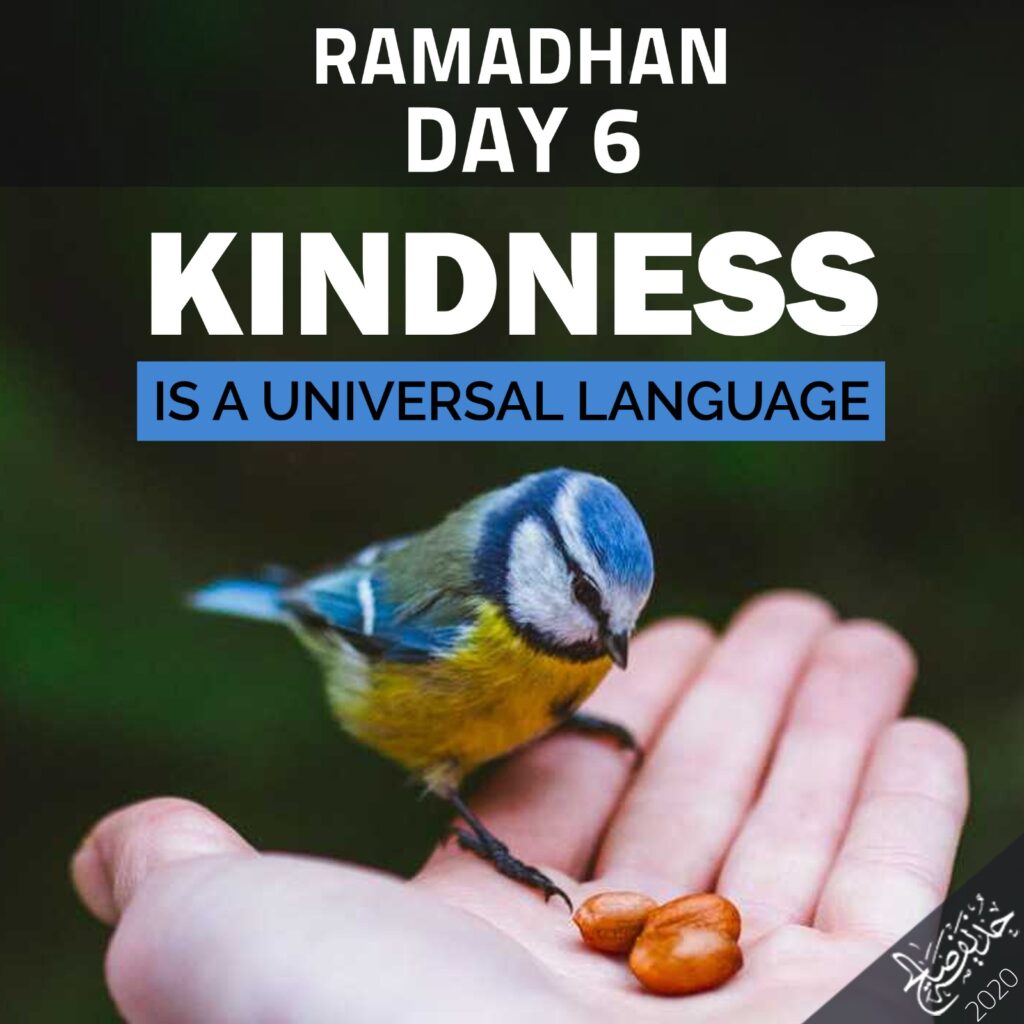
Know that Allāh admitted a prostitute into Jannah because she gave a drink to a dog that was thirsty. What will be the case for the one who feeds others, giving them drink and removing hardships from them!
Ibn al-Mubārak رحمه الله had a Jewish neighbor. He would always feed him before feeding his own children and would provide clothing for him first and then for his children. Some people said to the Jewish neighbour, “Sell us your house.” He answered, “My house is for 2000 dīnārs. 1000 is for the house and 1000 is for having Ibn al-Mubārak as a neighbor!” Ibn al-Mubārak heard of this and he exclaimed, “O Allāh, guide him to Islām.” By the permission of Allāh, he accepted Islām.
On another occasion, Ibn al-Mubārak رحمه الله passed by a caravan of people who were travelling to make the pilgrimage to Makkah. He too was on his way to do the same. He saw one of the women take a dead crow from a cesspit. He sent his servant to inquire about this and when he asked her, she replied, “We have had nothing for three days except that which finds its way into it.” When Ibn al-Mubārak رحمه الله heard of this, his eyes swelled with tears. He ordered for all of his provision to be distributed among those of the caravan, and having nothing with which to continue the journey, he returned to his home and gave up making the pilgrimage for that year. Later, he saw someone in a dream saying, “Your pilgrimage has been accepted, as have your rites; and your sins have been forgiven.”
No one regrets having done well even if he was extravagant in doing so. Regret is only for the mistake or for the wrong done, even when that wrong is a minor one. Good manners lead to prosperity, while bad ones lead to misery.
Nabī ﷺ said: Through good manners, one reaches the status of the person who not only fasts but who also stands late in the night to pray.
Nabī ﷺ also said: Shall I not inform you of the most beloved to me and the closest to me on the Day of Resurrection: Those of you who are best in manners.
[Don’t be sad, ʿĀ’id al-Qarni, Page 125-7, 194]

The righteous servants of Allāh ﷻ go to incredible lengths to earn divine rewards.
Imām Abū Dāwūd رحمه الله, the renowned Muḥaddith and the compiler of Sunan Abī Dāwūd was on board a ship when he heard a person on the shore sneeze and say ‘الحمد لله’ (All praise belongs to Allāh).
Imām Abū Dāwūd رحمه الله hired a small boat for one Dirham and went ashore in order to reply to the person who sneezed with ‘يرحمك الله’ (may Allāh have mercy upon you).
When Imām Abū Dāwūd رحمه الله returned to the ship, Imām Abū Dāwūd رحمه الله was asked why he had done so.
Imām Abū Dāwūd رحمه الله answered, “It is possible that the person who sneezed was a Mustajābud-Daʿwāt (one whose du’ās are readily accepted by Allāh).
When the people on board later went to sleep, they heard a voice proclaiming, “O people of the ship, (Imām) Abū Dāwūd (رحمه الله) purchased Jannah from Allāh at the cost of one Dirham!”
[Fatḥul Bārī, Volume 10, Page 610 || Pearls from the Path, Volume 3, Page 39-40]
Jannah purchased for only one Dirham! Naturally we assume Jannah can only be acheived by the performance of extensive good deed. We think we have to do loads of great actions and often overlook the small deeds. These small deeds can also be our ticket into Jannah. Little do we realise that it may be some tiny, ‘insignificant’ action of ours that brings about the pleasure of Allāh and can be the cause for us entering Paradise.
[Ṣaḥīḥ Bukhārī]
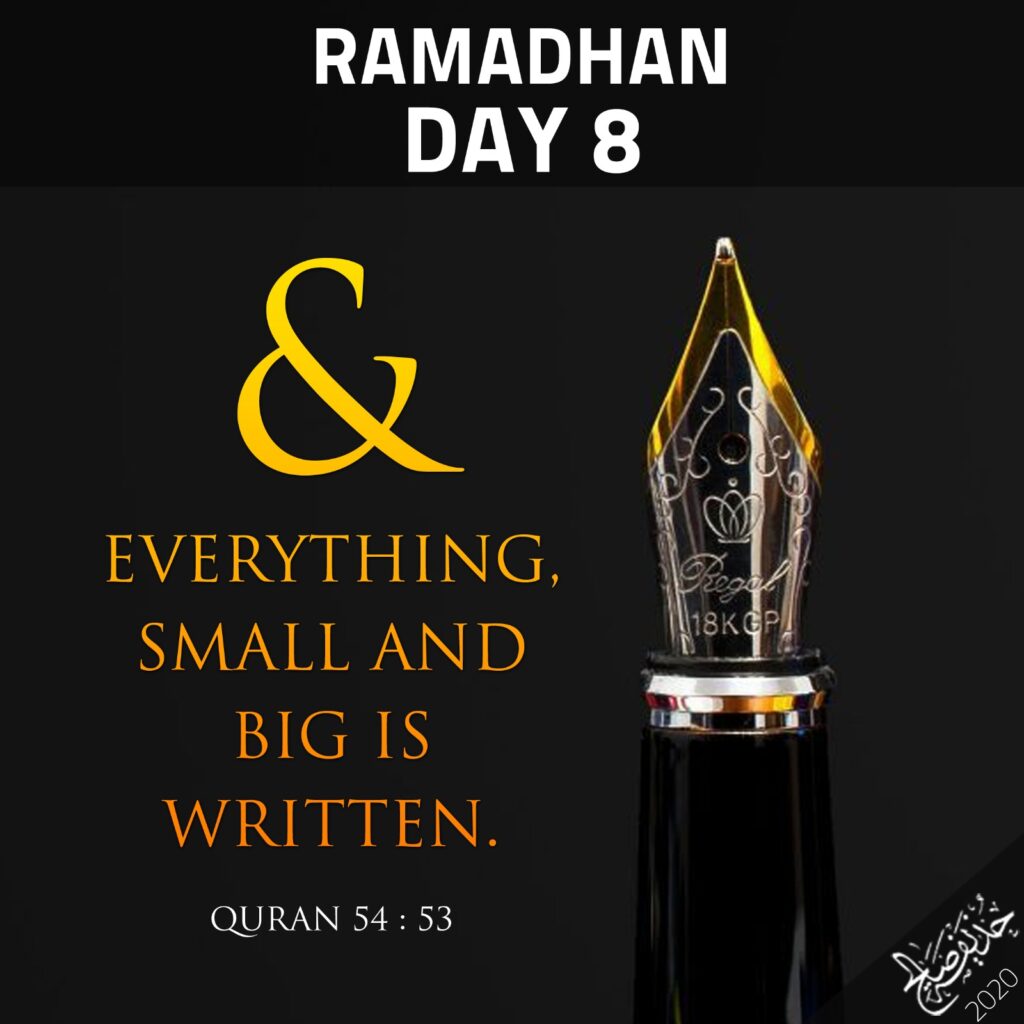
Imām Ḥaṣan Baṣrī رحمه الله said:
“O son of Ādam! Your record of deeds has been spread, and two honorable angels have been appointed. One on your right side and the other on your left. The one on your right side records your good deeds, and the one on your left records your evil deeds and sins. Focus on this reality, and do what you desire, increase it or decrease it. When you die, your record of deeds will be folded, and put around your neck. It will go with you in the grave, and remain there. When you will rise from your grave on the Day of Judgement, Allāh will say:
“Read your book. This day you yourself are enough to take your own account.”
[Qur’ān, Sūrah Isrā (17), verse 13-14]
[Maʿāriful Qur’ān, Volume 8, Page 159]
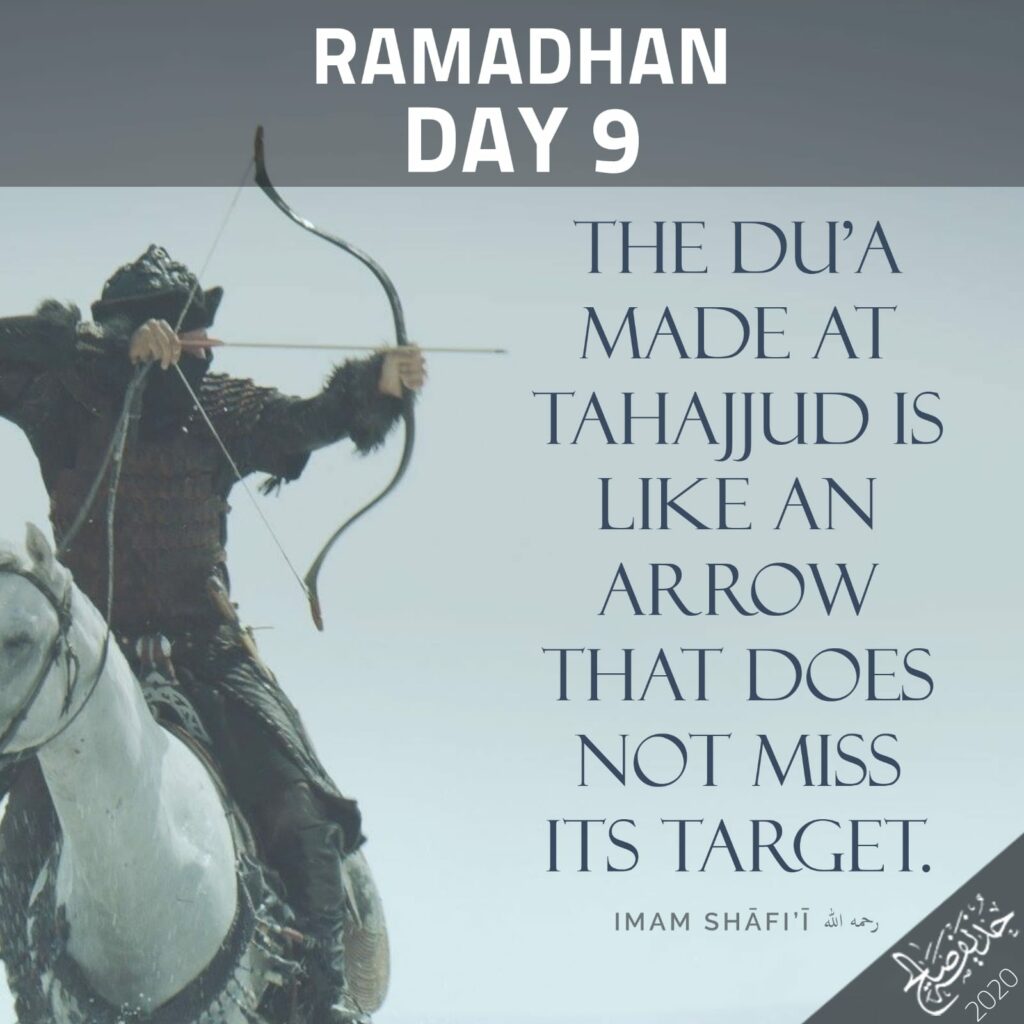
Supplicate to Allāh ﷻ with an earnest heart. Supplications and prayers are not lip service. Duʿā refers to asking and begging with full concentration and devotion. Spare a moment from your daily 24 hour activities and then wholeheartedly pray to Allāh ﷻ with full conviction of your duʿā being accepted by Allāh ﷻ.
What can’t a duʿā do? Duʿā is a miracle which can achieve the unachievable!
[Don’t worry, Be Happy, Muftī Saiful Islām, Page 15]
In order for our duʿā to be answered, it is necessary that one appears before Allāh تعالى as weak, helpless and simply unable to hold on his own, modest and humble and submits to Allāh تعالى with total negation of what is supposed to be pride, dignity, honour, ego and then makes duʿā. Duʿā is a thing of the soul which requires that its words match the feebleness and humbleness of the soul of the maker of that duʿā.
Allāh تعالى is All-Hearing (السميع), All-Knowing (العليم). Allāh تعالى knows what we show on the outside and what we hide on the inside. Allāh تعالى hears everything said quietly or loudly.
Therefore, when the voice of the Companions رضي الله عنهم reached a loud pitch during duʿā made on the occasion of the Battle of Khaybar, the Messenger of Allāh ﷺ said, “You are not calling someone dead or absent that you say it in such a loud voice. Instead, your addressee is someone Hearing and Near, that is Allāh تعالى (so, to raise your voice is redundant).
[Maʿāriful Qur’ān, Volume 3, Page 691-693]

Two great reciters of the Qur’ān, Imām Yazīdī and Imam Kisā’ī were once in the presence of Hārūn Ar-Rashīd, when the time for ṣalāh arrived. They decided that Imam Kisā’ī would lead the ṣalāh. During the course of his recitation of Sūrah al-Kāfirūn, he stammered for a moment. When they had completed, Imām Yazīdī remarked, “The Qāri of Kūfa stammered while reciting a simple Sūrah like this!”
“Guard your tongue so that it does not speak a word that will cause you distress. Distress is a result of speech.”
One who is hasty to pass remarks at the mistakes of others, is often put to shame by his own mistakes.
[Tārīkh Baghdād, volume 13, page 351; Tārīkhul Islām Dhahabī || Pearls from the Path, volume 2, Page 118-119]
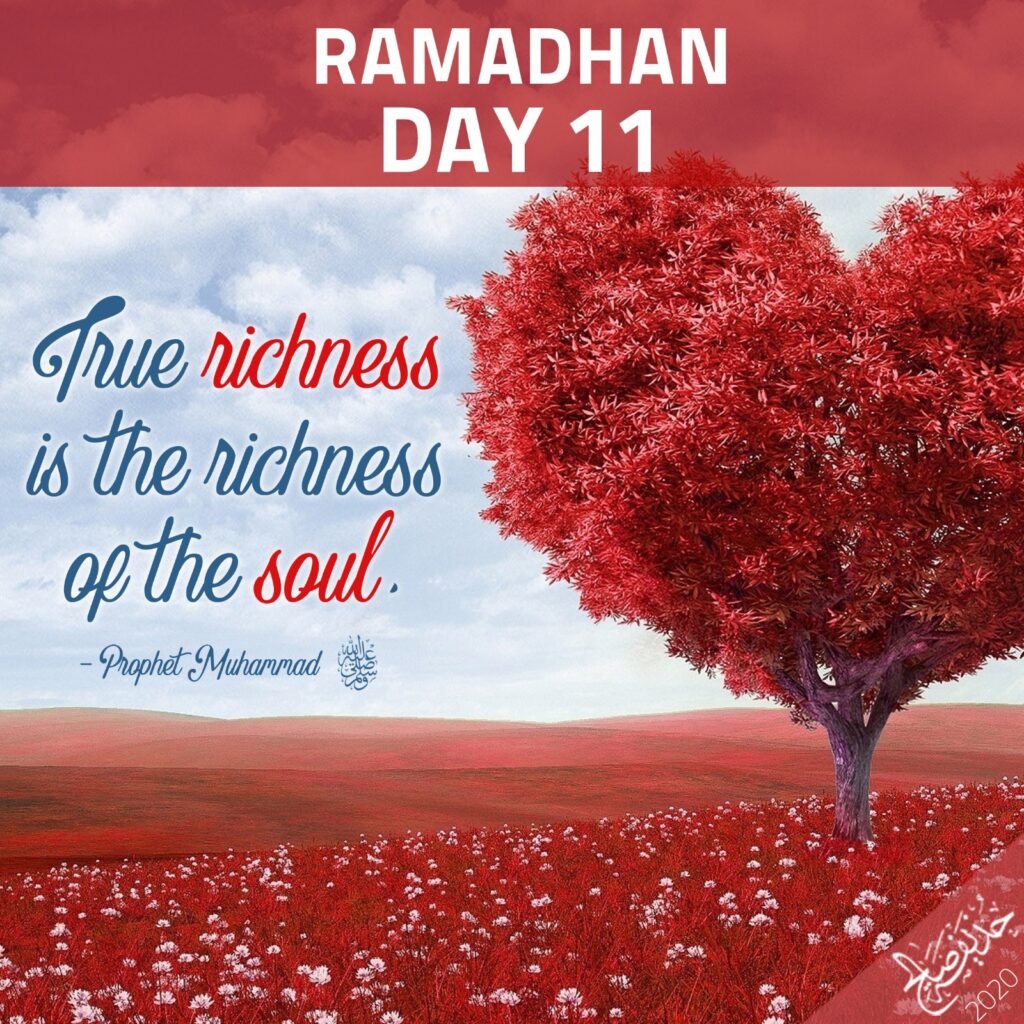
Most Scholars of the early generations were poor; needless it is to say, then, that they did not have beautiful houses or nice cars. Yet, despite this, they led fruitful lives, and they benefited mankind, not by some miracle, but because they used all that they were given, and spent their time in the correct way. Hence they were blessed in their lives, their time, and their talents.
On the contrary, there are many people who have been bestowed with wealth, children, and all forms of blessings, yet these blessings have been the very reason for their misery and ruin. They deviated from what their inborn instincts were telling them, namely, that material things are not everything.
If you’re a seeker of happiness, be satisfied with what Allāh has favoured you with. Certain educators go further than this by saying that you should imagine being contented with even less than you actually have now.
Your value is in your abilities, good deeds, manners, and contributions to society. Do not feel grief over that which has passed you by in life but be content with what Allāh has given you.
Remind yourself of Paradise, which is as wide as the Heavens and the Earth.
lf you’re hungry in this world, if you are sad, ill or oppressed, remember the eternal bliss of Paradise. lf you do, then your losses are really profits and the hardships you face are really gifts.
The most wise of people are those who work for the Hereafter, because it is better and everlasting. The most foolish of mankind are those who see this world as their eternal abode – in it reside all of their hopes. You will find such people to be the most grief-stricken of all when faced with calamity. They will be the most affected by worldly loss simply because they see nothing beyond the insignificant lives that they lead.
The happiness of Paradise will be absolute. So why do we not contemplate this fact? Paradise is our destination – and we ask Allāh سبحانه و تعالى for the highest of Paradise.
سَلَامٌ عَلَيْكُمْ بِمَا صَبَرْتُمْ فَنِعْمَ عُقْبَى الدَّارِ
“Peace be upon you for what you patiently endured. And excellent is the final home.”
[Qur’ān, Sūrah Ra’d (13), verse 24]
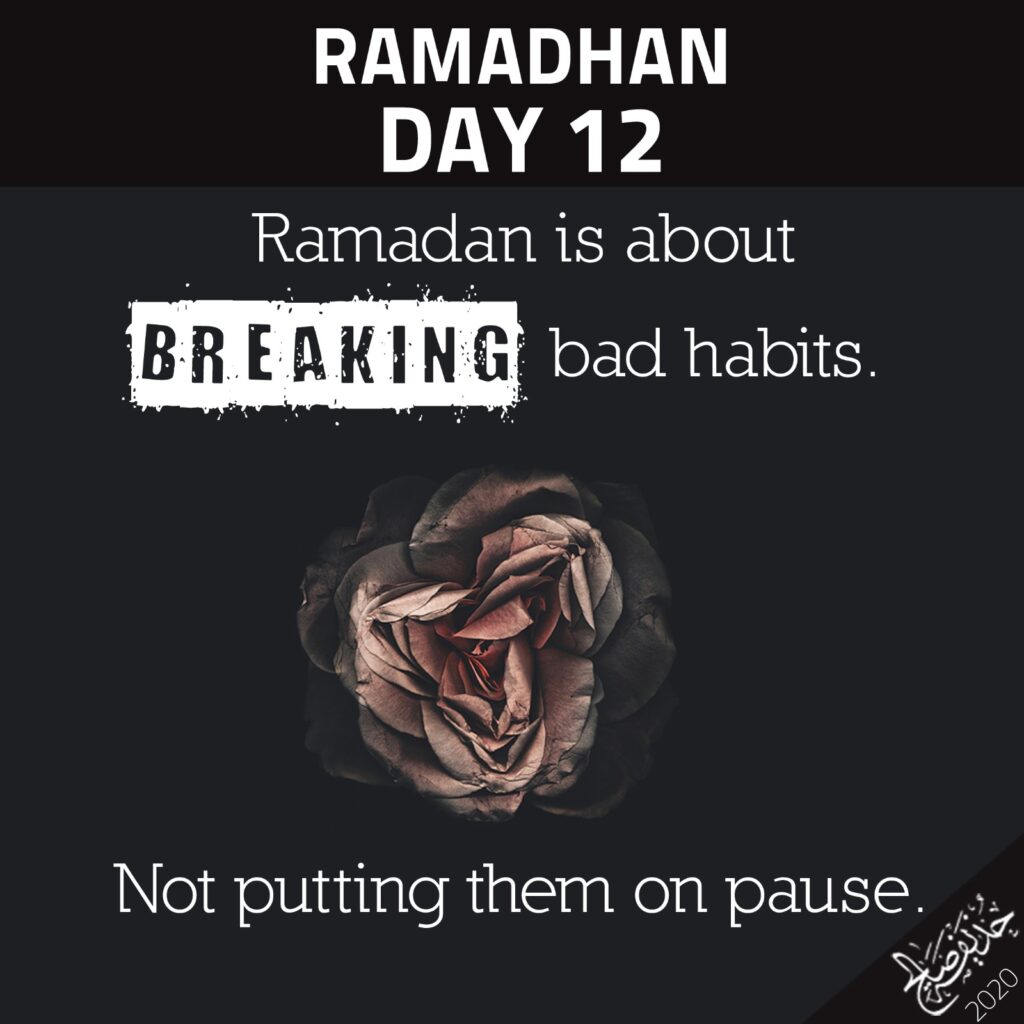
O people, there comes upon you a great month, a most blessed month, in which lies a night greater in worth than one thousand months. Allāh has made compulsory fasting in this month and has decreed wakefulness at night sunnah (tarawīḥ).
Whosoever tries drawing nearer to Allāh by performing any nafl (optional) deeds in this month, for him shall be such reward as if he has performed a farḍ act in any other time of the year. And whoever performs a farḍ action, for him shall be the reward of 70 farḍ actions in any other time of the year.
This is indeed a month of patience, and reward for true patience is Jannah; it is the month of sympathy with one’s fellow men; it is the month wherein a believer’s provision (rizq) is increased (Ibn Khuzaymah)
The month of Ramaḍān, the month of blessings has come to you, wherein Allāh turns towards you and sends down to you His special Mercy, forgives your faults, accepts prayers, observes your competition for doing good deeds and boasts to the angels about you. So, show Allāh your righteousness; for verily, the most pitiable and unfortunate one is he which is deprived of Allāh’s mercy in this month. (Ṭabrānī)
In this month, four things you should endeavour to perform in great number; two of which shall be to please your Lord, while the other two shall be of those which you cannot make do.
Those which shall please your Lord is you should recite in great quantity:
Lā ilaha illallāh, and make much istighfār.
As for those which you cannot make do: you should beg Allāh for entry into Jannah and seek refuge with Allāh from the fire of Jahannam. (Ibn Khuzaymah)
[Profit from Ramaḍān]
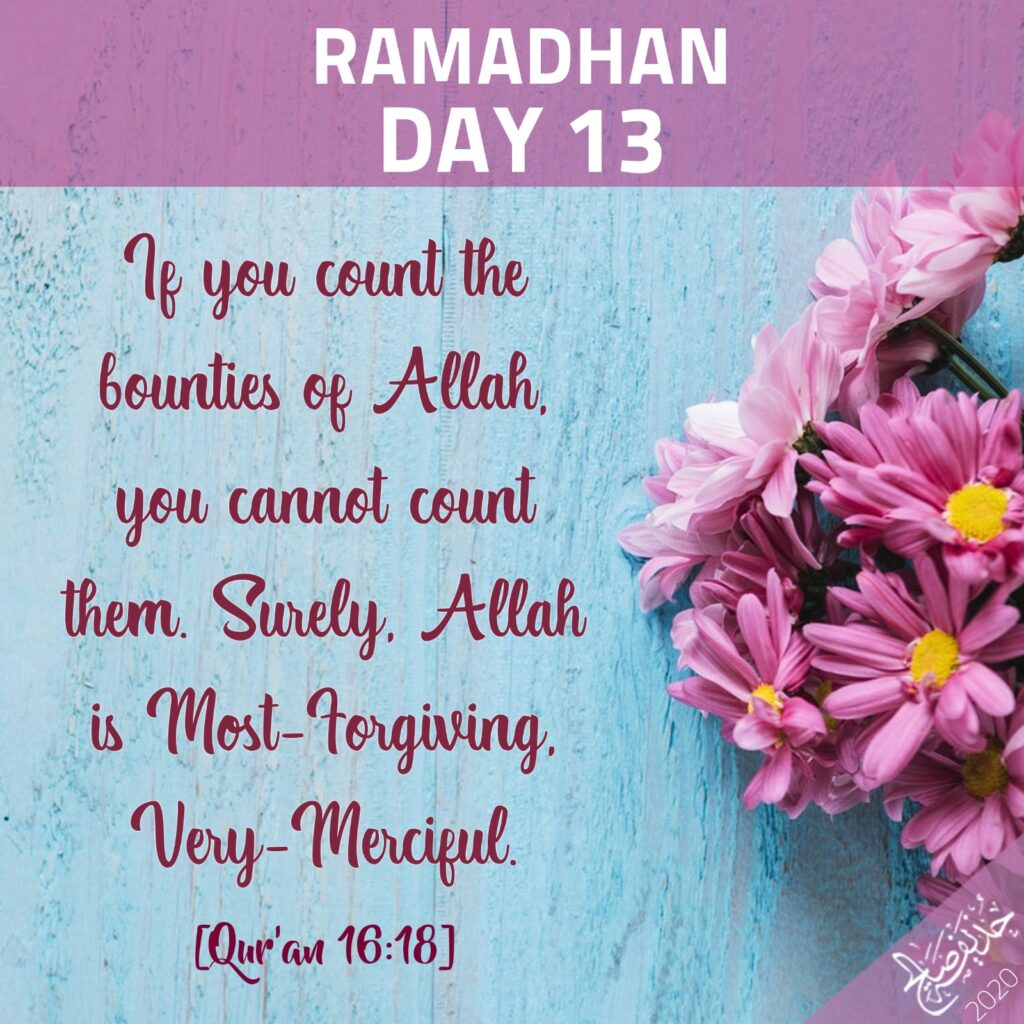
Remember the favours of Allāh upon you and how they surround you from above and below — indeed, from every direction.
Health, safety, nourishment, clothing, air, and water — these all point to the world being yours, yet you do not realise it. You possess all that life has to offer, yet remain ignorant.
Do you not see that Allāh has made subject to you whatever is in the heavens and the earth and amply bestowed upon you His favours, [both] apparent and unapparent?
[Qur’ān, Sūrah Luqmān (31), verse 20]
Can you picture yourself walking without feet? Should you take it lightly that you slumber soundly while misery hinders the sleep of many?
Should you forget that you fill yourself with both delicious dishes and cool water while the pleasure of good food and drink is impossible for some, due to sickness and disease?
Consider the faculties of hearing and seeing with which you have been endowed.
Look at your healthy skin and be grateful that you have been saved from diseases that attack it.
Reflect on your powers of reasoning and remember those that suffer from mental ailments.
Would you sell your ability to hear and see for the weight of Mount Uḥud in gold, or your ability to speak for huge castles? You have been given abundant favors, yet you feign ignorance. Notwithstanding warm bread, cool water, easy sleep, and good health, you remain despondent and depressed. You think about what you do not have and are ungrateful for what you have been given. You are troubled by a loss in wealth, yet you have the key to happiness and many blessings.
Contemplate and be thankful.
[Don’t be Sad, Dr. ʿĀ’iḍ al-Qarnī, Page 35-36]
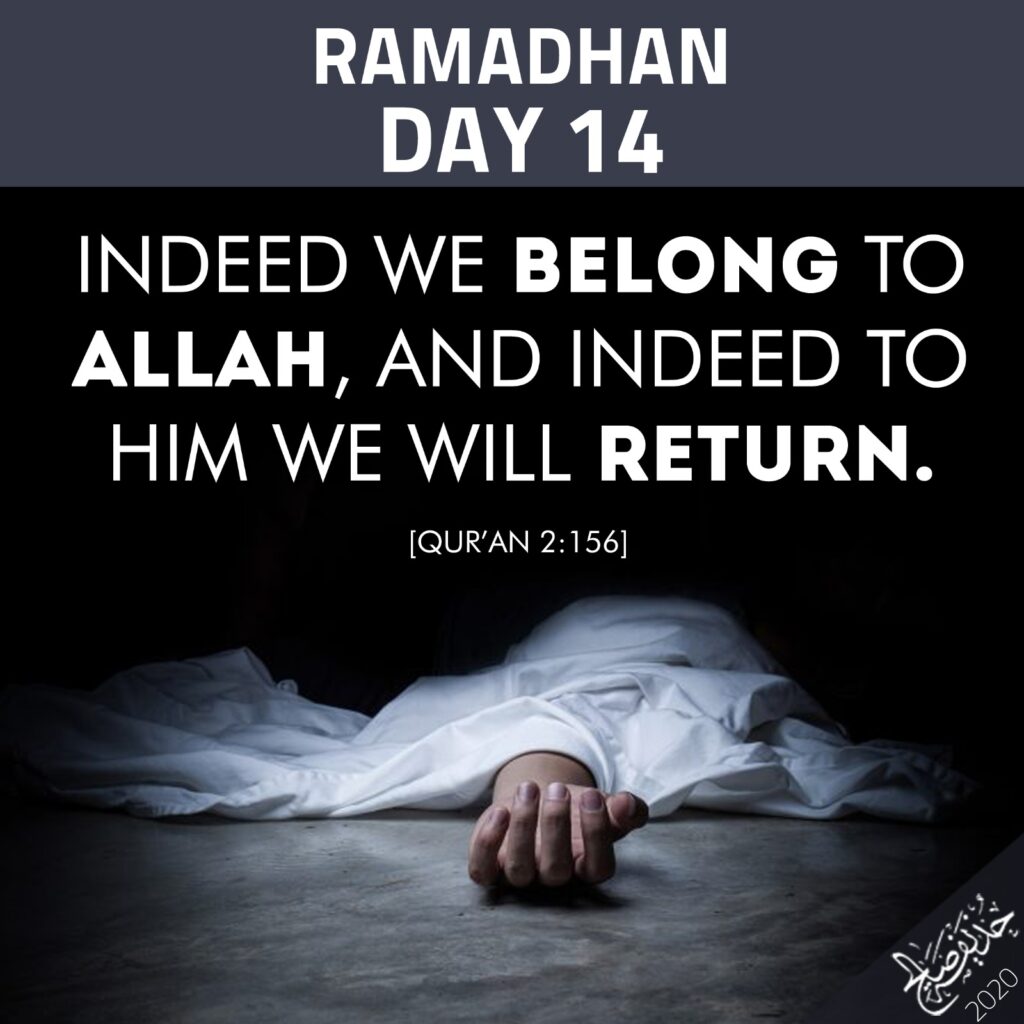
A human being’s salvation depends on his state at the time of death. He will enjoy eternal comfort, should he be blessed with the gift of ḥusn al-khātimah, otherwise he will taste boundless punishment.
Ḥāḍrat ʿUbādah Ibn Ṣāmit رضي الله عنه narrated from the Prophet ﷺ, “He who loves to meet Allāh, Allāh loves to meet him; and he who dislikes to meet Allāh, Allāh dislikes to meet him.”
The Prophet ﷺ replied, “That is not the case. The truth of the matter is that when death approaches a believer, the angels give him the cheerful news of Paradise and Allāh’s pleasure. This news makes death dearer to him. Likewise, when death approaches an unbeliever, the torment and punishment is presented to him. This situation makes the death a hateful and reprehensible thing to him.”
[Bukhārī and Muslim – Maẓharī].
[Maʿāriful Qur’ān, Volume 8, Page 789-790]
Ḥāḍrat ʿUmar رضي الله عنه said,
“Take account of yourselves before it is taken of you. Weigh your deeds before they are weighed for you (i.e on the Day of Judgement) and beautify yourselves for the great display (on the Day of Judgement).”
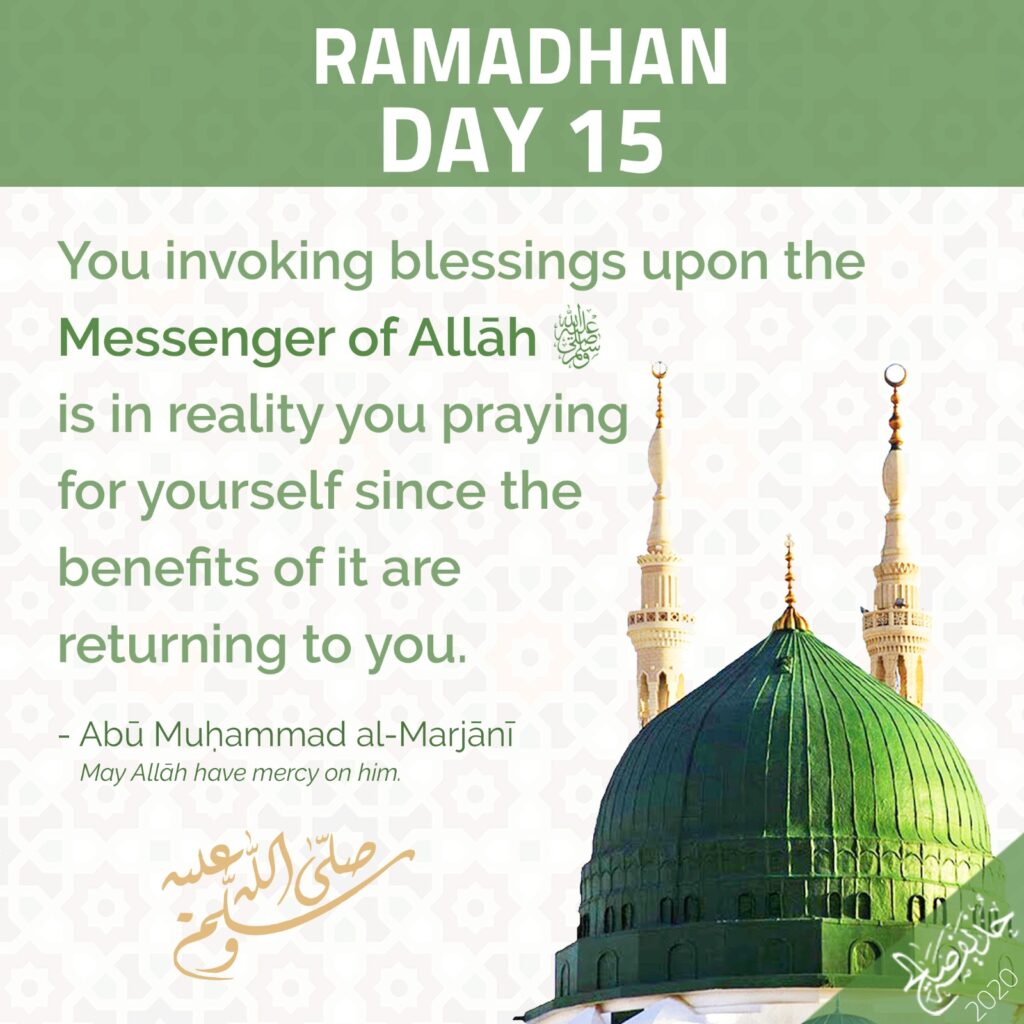
The Prophet ﷺ said,
مَنْ صَلَّى عَلَىَّ صَلاَةً وَاحِدَةً صَلَّى اللهُ عَلَيْهِ عَشْرَ صَلَوَاتٍ وَحُطَّتْ عَنْهُ عَشْرُ خَطِيئَاتٍ وَرُفِعَتْ لَهُ عَشْرُ دَرَجَاتٍ
“Whoever sends blessings upon me once, Allāḥ will send blessings upon him tenfold, and will erase ten sins from him, and will raise him ten degrees in status.
[Ibn Mājah and others]
One blessing and mercy from Allāh is sufficient for the whole creation, let alone ten of Allāh’s blessings in return for invoking blessings once. What virtue for invoking blessings is there which is greater than being granted ten blessings for invoking once?
In Zād al-Saʿīd, it is narrated from Al-Mawāhib al-Ladunniyya that on the Day of Judgement, a certain believer will have fewer good deeds. The Prophet ﷺ will place a parchment the size of a fingertip on the Scales. The pan of good deeds will become heavy.
The Prophet ﷺ will reply, “I am your Prophet and these are the blessings you invoked upon me. I have recompensed you in your time of need.”
One should not doubt that a parchment the size of a fingertip can weigh down the Scales, because it is sincerity which is of value to Allāh. The more sincerity in an action, the more it shall weigh.
[Virtues of invoking blessings and peace on the Noble Prophet ﷺ, Sheikh-ul-Ḥadīth Mawlāna Muḥammad Zakariyyā Kāndhalawī رحمه الله, Page 18, 38]
اللهم بارك على محمد و على آل محمد كما باركت على إبراهيم و على آل إبراهيم إنك حميد مجيد

Islām guarantees the right of life for every human being, whether they are Muslims or non-Muslims. Every human life is sacred in Islām and every person has been granted God-given fundamental and universal rights at the time of their birth.
As Muslims, we value human life irrespective of their geographical location, race and gender. We do not distinguish between the poor and the wealthy, women and men, the less able and the able. A life is a life. Hence, all lives are sacred and precious.
Therefore, a loss of life in any corner of the world is a cause of grief and sorrow for every true Muslim.
When a life is lost, it is our duty as Muslims to assist. Many incidents unfold at our doorsteps, such as the current coronavirus pandemic.
Be there to help; aid and support the Ummah and your brothers and sisters in humanity.
Make it your priority to aid by donating, or giving your time and effort and all will be recorded as charity, inshāAllāh.
During such moments, we pray to Allāh taʿālā, the Creator, that Allāh grants everyone guidance and fills this world with peace and security.
For those who have lost loved ones, may Allāh taʿālā grant them patience and courage. If families have lost their breadwinner, may Allāh taʿālā safeguard them from poverty. May Allāh taʿālā grant relief and give every human the good fortune to live in peace and prosperity. May Allāh comfort the families with ṣabr and may Allāh bless them and us with His mercy.
Āmīn Yā Rabb.
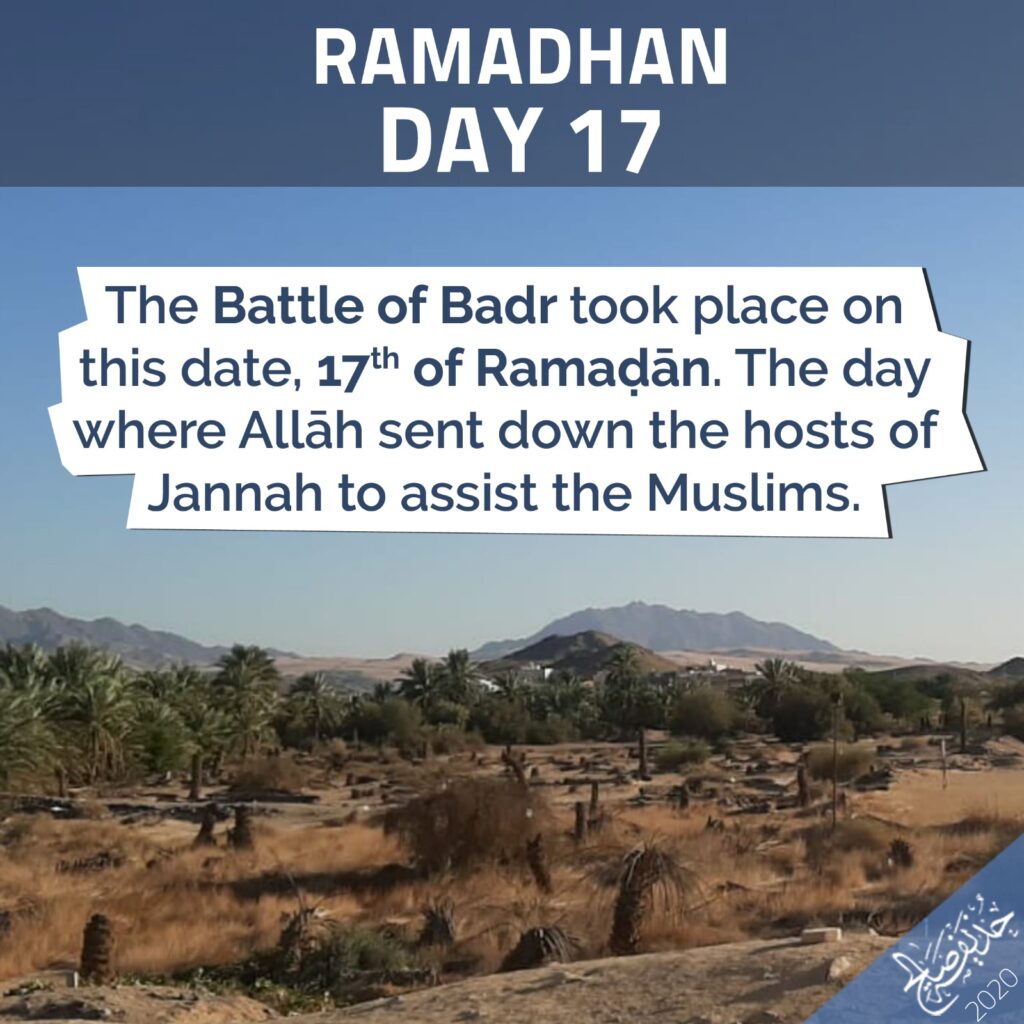
The Battle of Badr took place on this date, 17th of Ramaḍān – the day where Allāh ﷻ sent down the hosts of Jannah to assist the Muslims.
No other battle can be equated with the Battle of Badr. This is why Allāh ﷻ refers to this day as the day of Furqān – the differentiation factor between truth and falsehood.
It was also the month of the Furqān (another name for the Qur’ān). Allāh exposed the distinction between truth and falsehood, between guidance and deviation.
In the same month, Allāh ﷻ prescribed fasting so that Allāh may distinguish His sincere and committed slaves – who would bear the severity of hunger pangs from dawn till dusk in the most scorching of days in summer – against the faithless devotees who are slaves to their stomachs and jaws.
In short, this is a month of distinction in which from myriad angles, the sincere are set apart from the insincere.
[Sīratul-Musṭafā ﷺ, Volume 2]
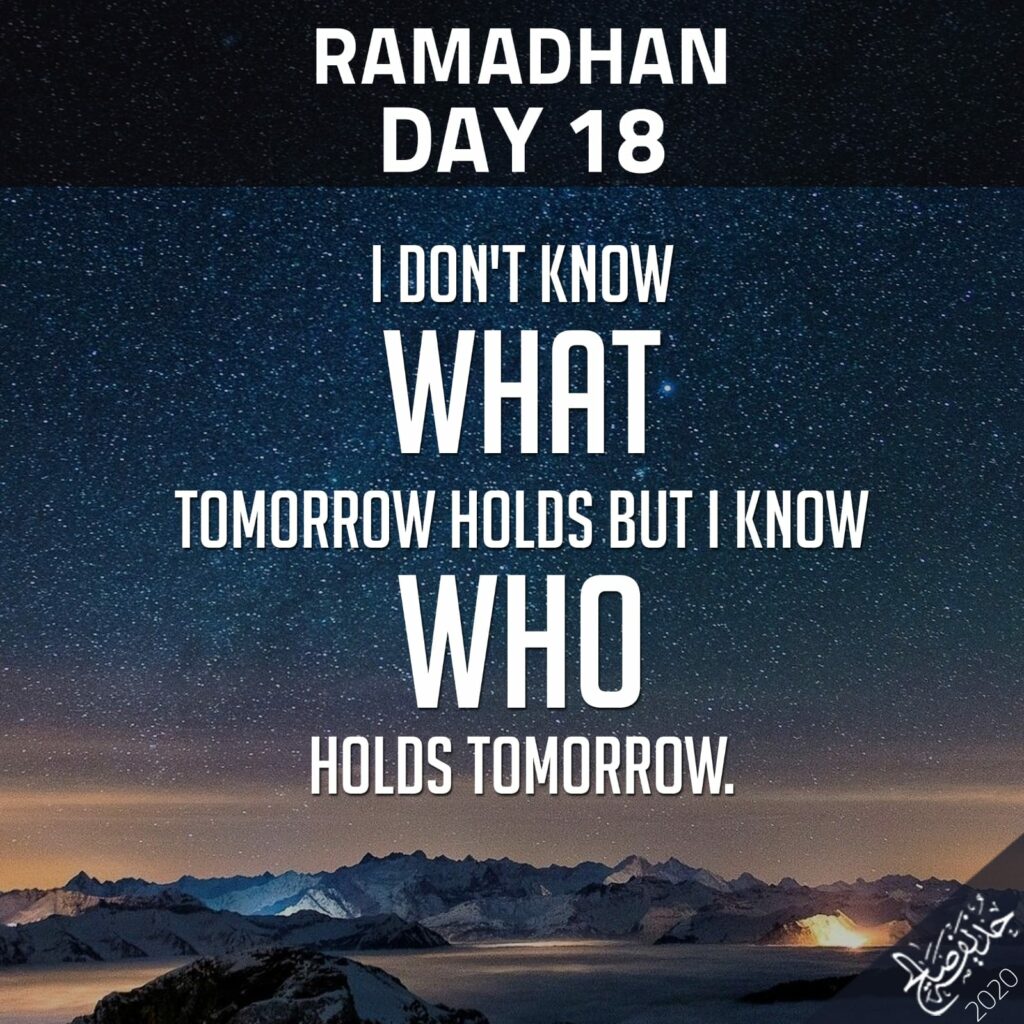
Be not hasty and rushed for things that have yet to come to pass. Do you think it is wise to pick fruits before they become ripe? Tomorrow is non-existent, having no reality today, so why should you busy yourself with it? Why should you have apprehensions about future disasters? Why should you be engrossed by their thoughts, especially since you do not know whether you will even see tomorrow?
The important thing to know is that tomorrow is from the world of the unseen, a bridge that we do not cross until it comes. Who knows, perhaps we might never reach the bridge, or the bridge might collapse before we reach it, or we may actually reach it and cross safely.
For us to be engrossed in expectations about the future is looked down upon in our religion since it leads to our having a long-term attachment to this world, an attachment that the good believer shuns. Many people of this world are unduly fearful of future poverty, hunger, disease, and disaster: such thinking is inspired by the devil.
الشَّيْطَانُ يَعِدُكُمُ الْفَقْرَ وَيَأْمُرُكُم بِالْفَحْشَاءِ و اللهُ يَعِدُكُم مَّغْفِرَةً مِّنْهُ وَ فَضْلًا و اللهُ وَاسِعٌ عَلِيمٌ
Satan threatens you with poverty and orders you to immorality, while Allāh promises you forgiveness from Him and bounty. And Allāh is all-Encompassing and Knowing.
[Qur’ān, Sūrah Baqarah (2), verse 268]
Many are those who cry because they see themselves starving tomorrow, falling sick after a month, or because they fear that the world will come to an end after a year. Someone who has no clue as to when he will die (which is all of us) should not busy himself with such thoughts.
Since you are absorbed in the toils of today, leave tomorrow until it comes. Beware of becoming unduly attached to future prospects in this world.
[Don’t be Sad, Dr. ʿĀ’iḍ al-Qarnī, Page 40-41]
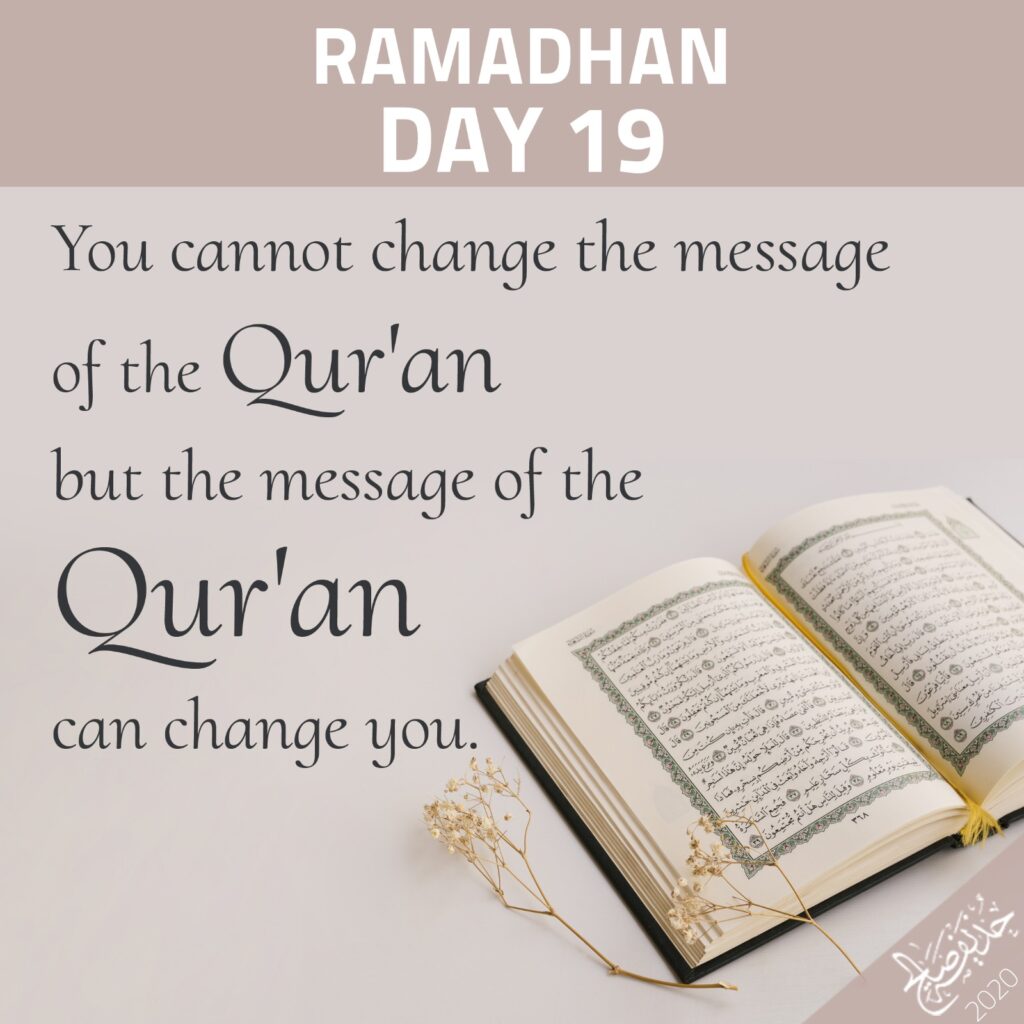
Ma’mūn Ar-Rashid, a Muslim Khalīfah, used to host religious gatherings, wherein Muslim scholars discussed various issues.
On one such occasion, a Jew entered the discourse. He was notably well-dressed, respectable in appearance and eloquent in speech. At the end of the discussion, as the crowd began to disperse, Ma’mūn called him and asked, “Are you a Jew?”
“Yes”, he replied.
Ma’mūn asked him to accept Islām, but he refused, saying, “I cannot leave my religion and the religion of my ancestors.” Saying this, he left.
One year later, he returned, but this time he had converted to Islam. He delivered a scholarly lecture on Isāmic jurisprudence. At the end of the gathering, Ma’mūn asked him, “Are you not the same person who attended last year?”
“Yes”, he replied.
“What caused you to accept Islām?” Ma’mūn enquired.
He answered, “After leaving your gathering last year, I decided to embark on a comparative study of religions. As I am a fine calligrapher, I wrote three copies of the Torāh in which I added and deleted a few words. With these copies of the Torāh, I entered a synagogue. These copies were brought from me. I then wrote three copies of the Injīl in which I also added and deleted a few words. I entered a church and sold these as well. Then I wrote out three copies of the Qur’ān, and likewise added and deleted a few words. When I presented these to the Muslim booksellers, they examined them before deciding to buy them. They discovered the additions and deletions in them and immediately dispensed with them. I then realised that this book was protected, and embraced Islām.”
Allāh has undertaken to protect the Qur’ān. It has been meticulously and miraculously preserved for over fourteen hundred years and will remain so till the end of time.
[Tafsīr Qurṭubī]
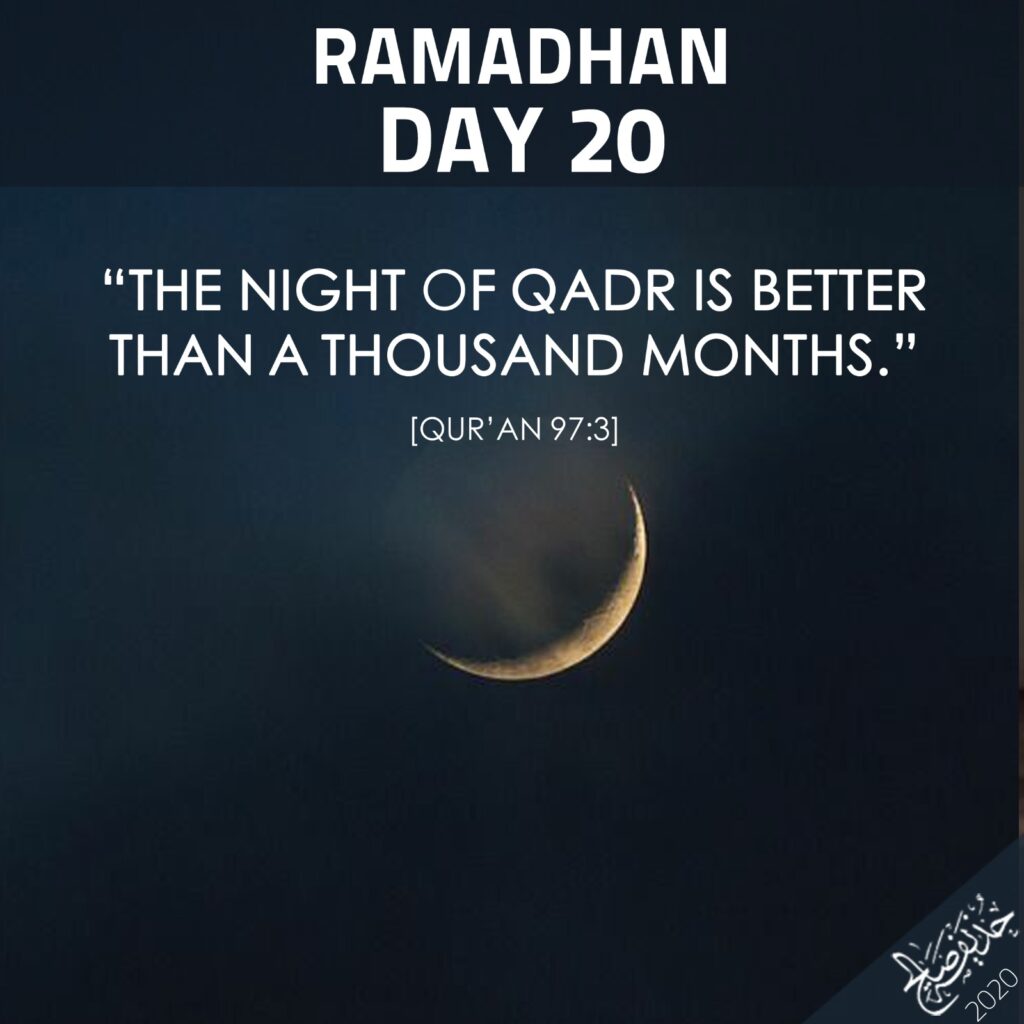
One meaning of the word ‘Qadr’ is ‘greatness, honour or dignity’. The night of Qadr has been given this name because it is a night of greatness, honour, majesty and dignity.
Abū Bakr Warrāq رحمه الله has stated that this night is so called because a person becomes a man of honour and dignity on account of repentance, seeking pardon and righteous acts during this night whilst prior to this he might have lacked honour and dignity on account of an unrighteous life he might have led.
The greatest virtue of the night is that the acts of worship performed on this single night is better than worship in 1000 months (83 years, 4 months).
The Messenger of Allāh ﷺ said, “He who spends the Night of Qadr in the worship of Allāh, all his past sins will be forgiven.”
In another narration the Messenger ﷺ said, “All the angels resident at the ‘Lote Tree of the Uttermost Boundry’ descend in the leadership of Ḥaḍrat Jibrā’īl عليهم السلام and greet every believer, man or woman, except the one who takes wine or eats pork.”
In a different narration by Ḥaḍrat Anas رضي الله عنه the Messenger of Allāh ﷺ said, “When the night of Qadr occurs, Ḥaḍrat Jibrā’īl عليه السلام descends on the earth with a huge gathering of angels and all of them pray for every servant of Allāh, man or woman, busy in ṣalāh or dhikr, to be blessed by Allāh ﷻ.
The Messenger ﷺ was asked what supplication should be made if one finds the night. The Messenger ﷺ replied,
اَللّٰهُمَّ إِنَّك عَفُوٌّ تُحِبُّ الْعَفْوَ فَاعْفُ عَنِّيْ
O Allāh, Indeed You are the Oft-Pardoning, You love to pardon, so pardon me.
The Messenger of Allāh ﷺ instructed to search for it (the night) in the odd nights of the last ten days.
[Maʿāriful Qur’ān, Volume 8]
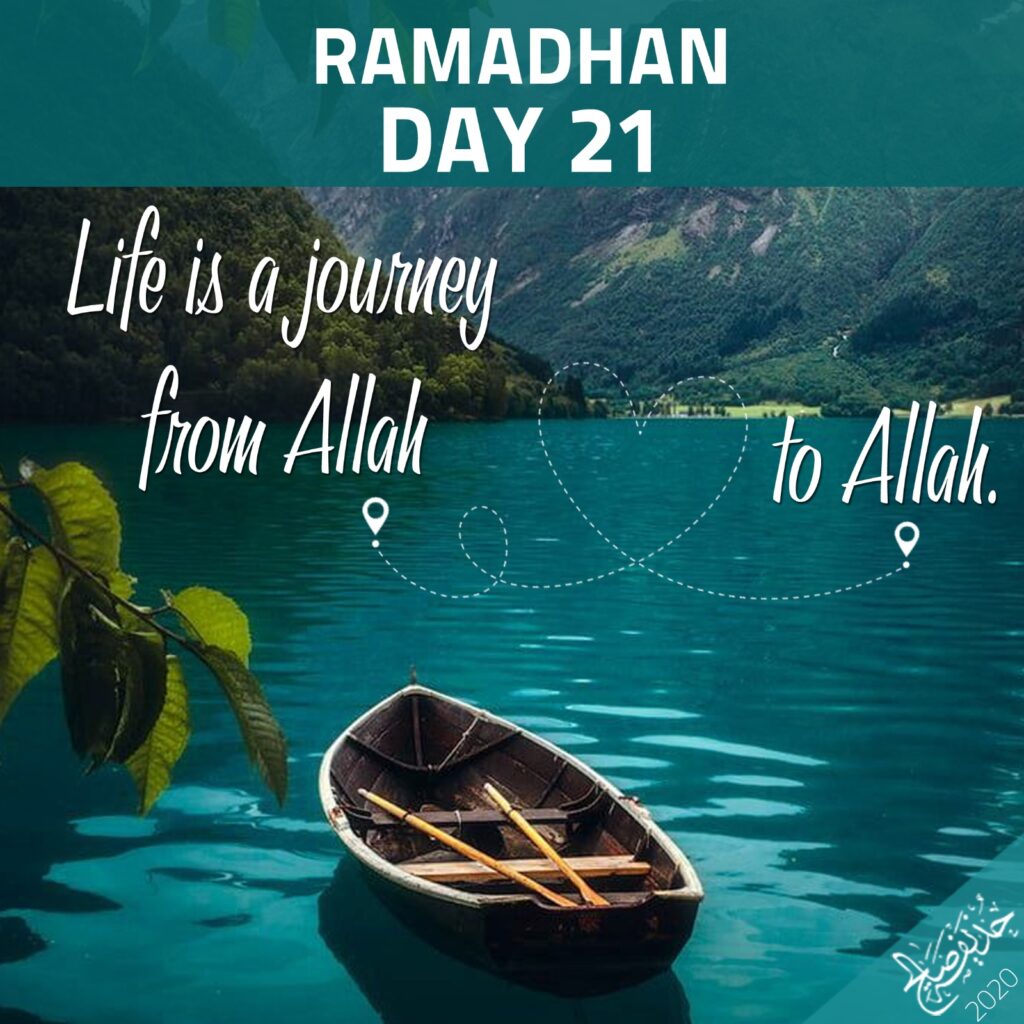
Khulayd al-ʿAṣarī said, “Every lover desires to meet his beloved, so love your Lord and travel to Him with a fine journey: neither arduous nor lax. This journey will take the believer to his Lord and whoever does not know the path to his Lord will not traverse it and there is no difference between such a person and an animal.”
[Abū Nuʿaym, vol.2, p.232]
Dhū’l-Nūn said, “The lowly are those who do not know the path to their Lord and nor do they seek to know it.”
[Ibid, vol 9, p.372]
The path to Allāh ﷻ is to traverse His Straight Path with which Allāh sent His Messenger ﷺ and for which Allāh ﷻ revealed His Book. It is this Path that Allāh ﷻ commanded the whole of creation to traverse.
Ḥaḍrat Ibn Masʿūd رضي الله عنه said, “The Straight Path: Muḥammad ﷺ left us on one end of it and the other end is in Paradise. To its right and left are paths branching off on which stand people summoning those who pass by them. Whoever takes to those paths will end up in the Fire but the one who remains on the Path will end up in Paradise.” Then he recited:
And, [moreover], this is My path, which is straight, so follow it; and do not follow [other] ways, for you will be separated from His way. This has He instructed you that you may become righteous.
[Qur’ān, Sūrah Anʿām (6), verse 153]
[The journey to Allāh ﷻ, Ibn Rajab al-Ḥanbalī رحمه الله]
Go to the kings of this world and they’ll ask you,
“What did you bring?”
Go to Allāh, the King of the heavens and the earth and Allāh will ask you,
“What would you like?”
– Shaykh Zulfiqār Aḥmad
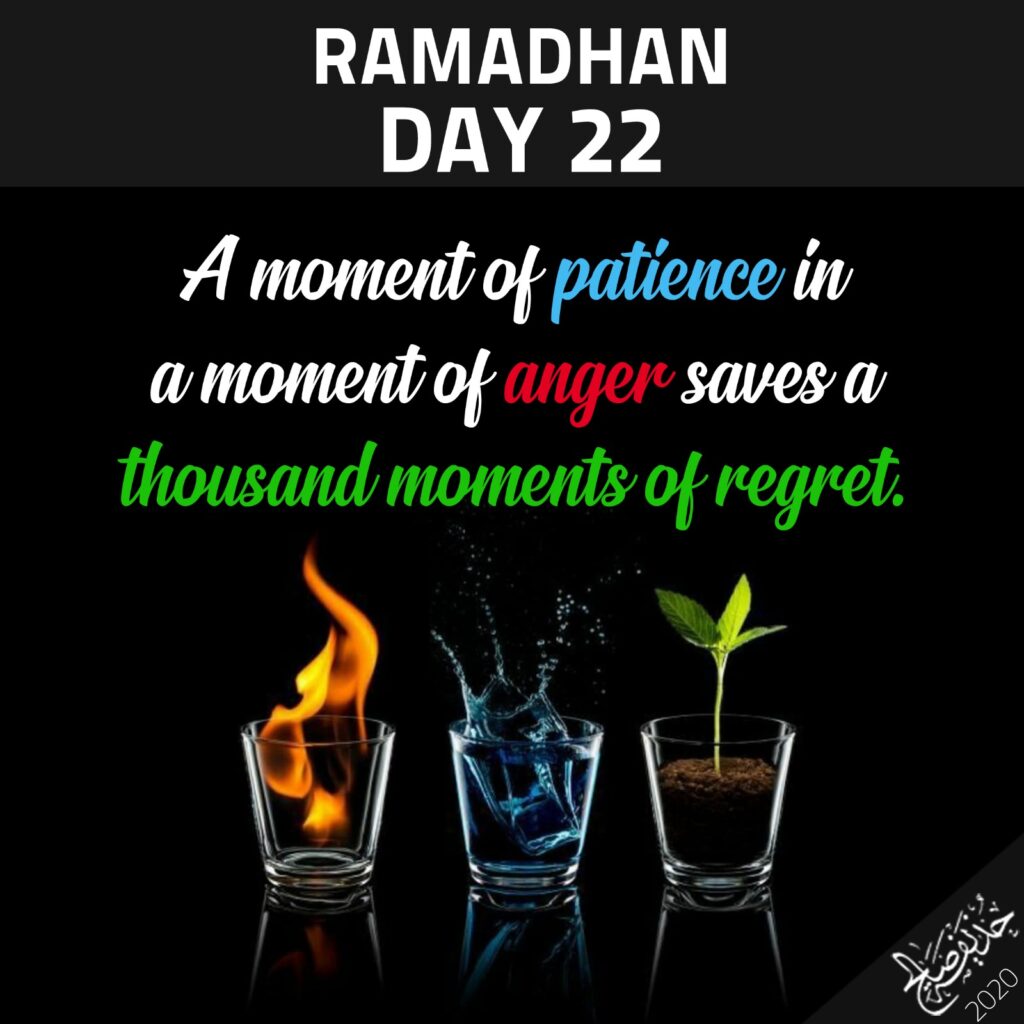
[Qur’ān, Sūrah Āl ʿImrān (3), verse 134]
There is an incident in the life of the great Imām Abū Ḥanīfah رحمه الله. Someone accosted him in a busy market place and heaped all sorts of insults and invectives on him. The great Imām controlled his anger and said nothing to him. He went home, took out a considerable quantity of gold and silver coins, put them in a gift-wrapped tray and went out to the home of his confronter. He knocked at his door. When this person came out, he presented this tray full of coins before him saying, ‘Today, you did something very good to me. You gave me (some) of your good deeds (that you had done). It is in gratitude of this great favour of yours that I am presenting this gift to you.’ The Imām’s unusual conduct naturally affected the man. He repented and got rid of his bad habit forever. After asking for Imām’s forgiveness, he entered into his circle as a disciple and finally became a great scholar.
Forgiving people their mistakes and shortcomings is a quality that ranks very high in human morals. Besides, its merit in the life-to-come is much higher.
[Maʿāriful Qur’ān, Volume 2]

For anything that you spend, Allāh ﷻ gives you a return from His unseen treasures – at times, within this world and at times, in the Hereafter and at times, in both.
We see that water comes down from above, animals and humans use it freely, needs of farms and forests are satiated, and no sooner does that supply of water finish, then another supply descends to replenish it. Similar is the case of wells dug for water that, no matter how much water is spent out of these, it stands replenished by nature from other sources of water beneath the bed.
Man eats up his food leaving the impression that he has finished it, but Allāh provides him with other food in its absence. In short, whatever man spends out in this world, it is the practice of Allāh that Allāh would replace it with something else similar to it.
According to a Ḥadīth of Ḥaḍrat Abū Hurairah رضي الله عنه in Ṣaḥīḥ Muslim, the Prophet ﷺ said, “Everyday when people rise to see another morning, two angels descend from the heavens and pray: O Allāh, bless the one who spends [out of what You gave] with its return, and let the one who withholds [what You gave] find it wasted.”
There is no promise of a return for spending that which is not spent in accordance with the Sharīʿah.
Ḥaḍrat Jābir رضي الله عنه reported the Prophet ﷺ said, “Good deed is sadaqah. When someone spends on himself or his children and family, that spending too falls under sadaqah. It brings reward. One who spends to protect his integrity and honour, this too is sadaqah. Whoever spends whatever he does in obedience to the command of Allāh, Allah has taken it upon Himself that He will give him its return except that which is spent in (wasteful, extra to need) building or sinful activity, for there is no promise of a return for it.”
After hearing this from Ḥaḍrat Jābir رضي الله عنه, his disciple, Ibn al-Munkadir asked, “What is the meaning of spending to protect one’s honour?” He said, ‘There may be a person about whom one apprehends that, should he not give him something, he would go about insulting him in all sorts of ways. Hence, giving to such a person is in order to save one’s honour.” [Dāraquṭnī]
[Maʿāriful Qur’ān, Volume 7]
Miserly people are deplorable in their manners and are always ill at ease. They are stingy in sharing the favours of Allāh. If the miser only knew that he would achieve happiness by spending money on those who are poor, then he would surely race to give charity.
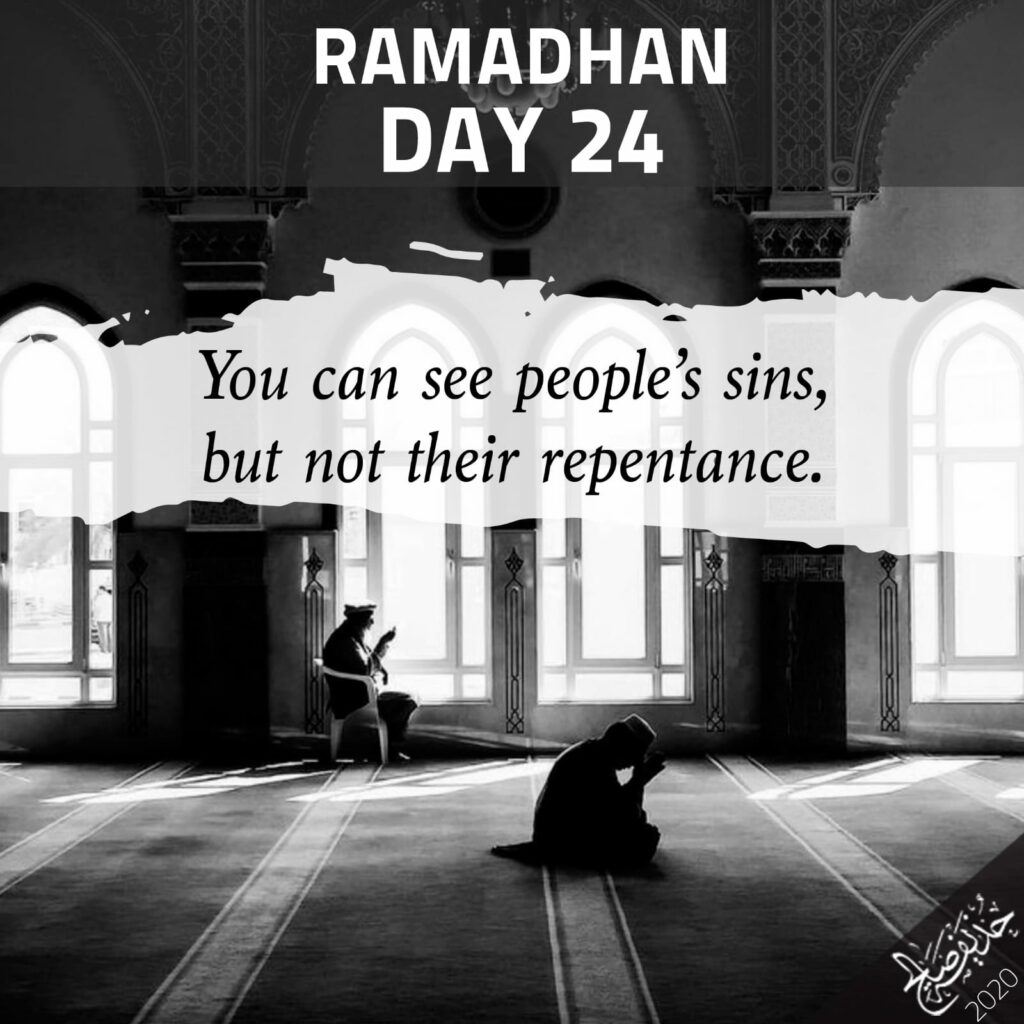
Most of the people with whom we mix, no matter how evil they may be, will always have some good in them, even if it be relatively little. In such cases, if we are able to access their good qualities, then that is for the best.
A criminal may be known for climbing over into people’s houses and stealing their property in order to give some of it to the destitute and the orphans, or even to build mosques therewith! Likewise, a woman may see some orphans starving, so she sins to earn some money to stave their hunger, or a person carrying a knife to stab someone, then he sees a child or a woman, and his heart melts so he drops the knife!
Therefore, you should deal with the people in accordance with what you know of good from them, before thinking badly of them.
Our beloved Prophet ﷺ was known for his character of making excuses for those who err, and thinking good of those who sin. When he would come across a sinful person, he would first look at the aspects of his faith, then look at the aspects of his whims and disobedience. He would not have bad thoughts about anyone. He would treat them all as his own sons and brothers.
A man at the time of the Prophet ﷺ was an alcoholic. Once he was brought to the Prophet ﷺ in drunken state, and it was decreed that he be lashed. After a few days, he was caught drinking again, and was brought to the Prophet ﷺ and lashed. After a few days he was caught yet again drinking alcohol, and brought to the Prophet ﷺ and lashed. After being lashed, when he turned to leave, a person from the Companions said, “May Allāh curse him! How often he has come here to be lashed!” The Prophet ﷺ turned to him whilst his complexion had visibly changed, and said, “Do not curse him! By Allāh, I know that he loves Allāh and His Messenger!”
(Bukhārī and Muslim)
When you deal with people, be just. Remember the good that they have, and make them feel that their evil has not made you forget their good. This will bring them closer you.
Before you begin to uproot the ‘tree of evil’ in others, look for the ‘tree of good’ and water it.
[Enjoy your life, Dr. Muḥammad ʿAbdur-Raḥmān Al-ʿArīfī]
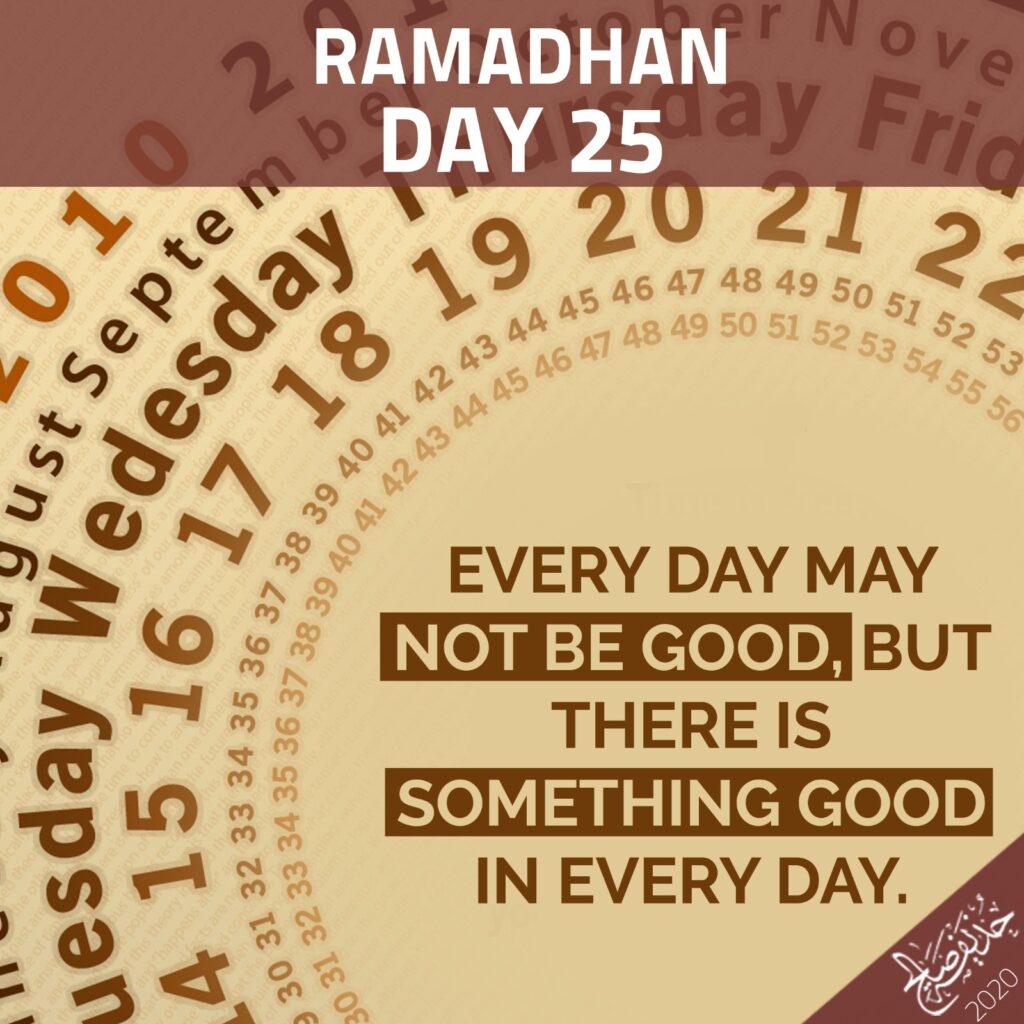
Among the greatest of blessings is to have a calm, stable and happy heart. For in happiness the mind is clear, enabling one be a productive person. It has been said that happiness is an art the needs to be learned, and if you learn it, you will be blessed in this life.
But how does one learn it?
A basic principle of achieving happiness is having an ability to endure and to cope with any situation. Therefore, you should neither be swayed nor governed by difficult circumstances, nor should you be annoyed by insignificant trifles. Based on the purity of the heart and its ability to endure, a person will shine. When you train yourself to be patient and forbearing, then hardship and calamity will be easy for you to bear. The opposite of being content is being shortsighted, being concerned for no one but one’s own self and forgetting about the world and all that is in it.
It is as if such people see themselves as being the whole universe, or at least at the centre of it. They think not of others, nor do they live for anyone but themselves. It is incumbent upon you and I to take time out to be preoccupied with more than just us, and to sometimes distance ourselves from our own problems in order to forget our wounds and hurts. By doing this, we gain two things: we make ourselves happy, and we bring joy to others.
Basic to the art of happiness is to bridle our thoughts and to restrain them, not allowing them to wander, stray, escape, or go wild. If you leave your thoughts to wander as they wish, then they will run wild and control you. They will open the catalogue of your past woes. They will remind you of the history of your misfortunes, beginning from the day that your mother gave birth to you. If your thoughts are left to roam, then they will bring to you images of past difficulties and images of a future that is frightening. These thoughts will shake your very being and will cause your feelings to flare. Therefore bridle them, and restrain them by directing them to the concentrated application of the kind of serious thought that begets fruitful and beneficial work.
[Don’t be Sad, Dr. ʿĀ’iḍ al-Qarnī, Page 90-91]
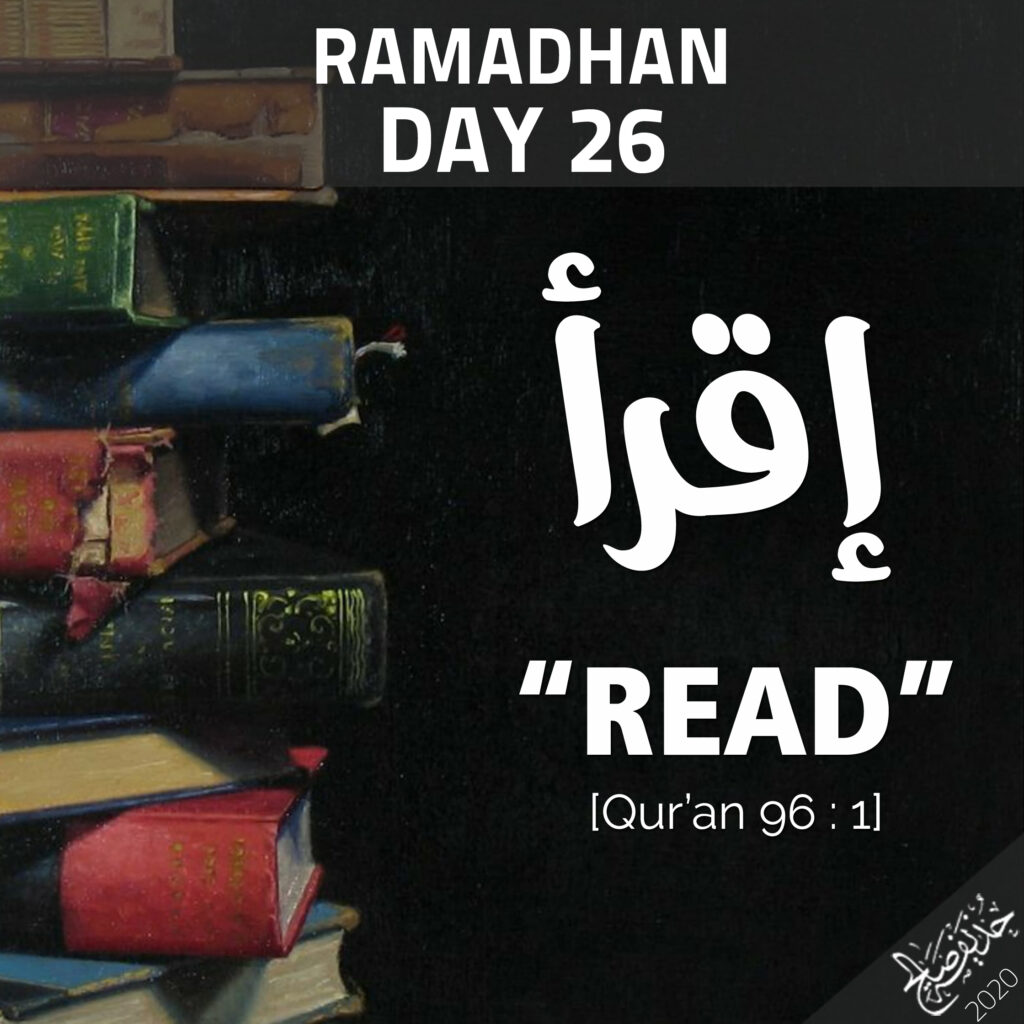
Al-Jāḥiẓ, an Arab writer from centuries ago, advised:
The book is a companion that does not praise you and does not entice you to evil. It is a friend that does not bore you, and it is a neighbour that causes you no harm. It is an acquaintance that desires not to extract from you favours through flattery, and it does not deceive you with duplicity and lies. When you are poring through the pages of a book, your senses are stimulated and your intellect sharpens.
Through reading the biographies of others, you gain an appreciation of common people while learning the ways of kings. It can even be said that you sometimes learn from the pages of a book in a month, that which you do not learn from the tongues of men in a century. All this benefit, yet no loss in wealth and no need to stand at the door of the teacher who is waiting for his fees or to learn from someone who is lower than you in manners.
The book obeys you by night as it does by day, both when you are travelling and when you are at home. A book is not impaired by sleep nor does it tire in the late hours of the night. It is the teacher who is there for you whenever you are in need of it, and it is the teacher who, if you refuse to give to it, does not refuse to give to you. If you abandon it, it does not decrease in obedience. And when all turn against you, showing you enmity, it remains by your side. As long as you are remotely attached to a book, it suffices you from having to keep company with those that are idle. It prevents you from sitting on your doorstep and watching those who pass by. It saves you from mixing with those that are frivolous in their character, foul in their speech, and woeful in their ignorance.
If the only benefit of a book was that it keeps you from foolish daydreaming and prevents you from frivolity, it would certainly be considered a true friend who has given you a great favour.
[Don’t be Sad, Dr. ʿĀ’iḍ al-Qarnī, Page 142-143]
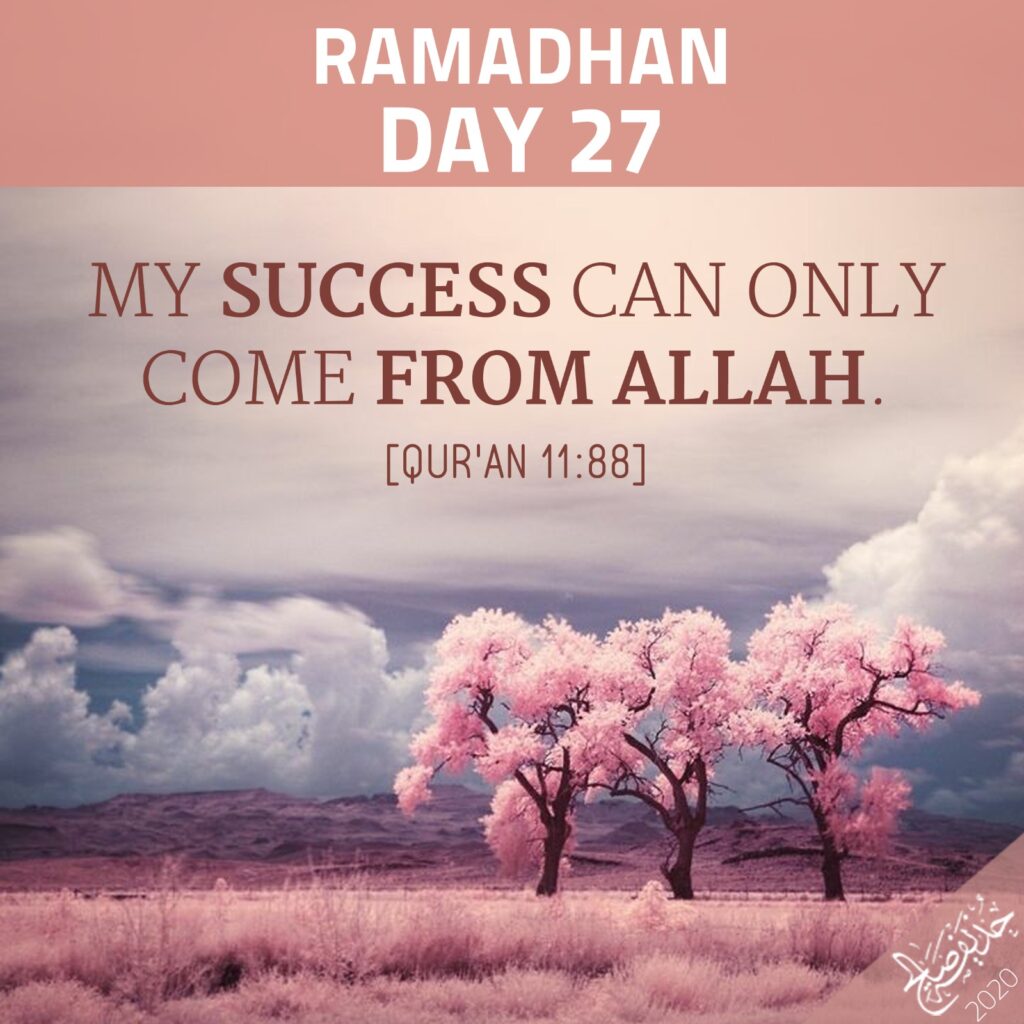
The Prophet ﷺ said about Shuʿayb عليه السلام that he was an orator among prophets. His eloquence was exceptional. He went to its farthest limits in order to make his people understand his message and take to the right path. But, even after having listened to him, the response of his people was different from that given by ignorant diehards to their reformers. They threw taunts at him, made fun of him.
What Shuʿayb عليه السلام said to his people was good counsel based on earnest fellow feeling. But, his people responded sarcastically that was biting. However, they had done that to a blessed prophet of Shuʿayb’s class. He heard their caustic comments, yet turned to them with the same empathy and once again tried to make them see the truth. He said,
قَالَ يَا قَوْمِ أَرَأَيْتُمْ إِن كُنتُ عَلَىٰ بَيِّنَةٍ مِّن رَّبِّي وَرَزَقَنِي مِنْهُ رِزْقًا حَسَنًا
[O my people, have you considered: if I am upon clear evidence from my Lord and He has provided me with a good provision from Him]
Shuʿayb عليه السلام was telling his people that he had been blessed by his Lord in that He gave him good provision for his material life and in that He also gave him the light of revelation and spiritual insight. Now, with these wonderful assets in his hands, how could he ever think of becoming like them, willingly embracing error and injustice, and thus failing to bring the truth home to them?
After that, he said,
وَ مَا أُرِيدُ أَنْ أُخَالِفَكُمْ إِلَىٰ مَا أَنْهَاكُمْ عَنْهُ
[And I do not intend to differ from you in that which I have forbidden you]
This tells us that the way a preacher of religion conducts his life has a major role in what he preaches. What a preacher does not himself practice produces no effect on others. Then, he said,
إِنْ أُرِيدُ إِلَّا الْإِصْلَاحَ مَا اسْتَطَعْتُ
[I only intend reform as much as I am able]
And since, this effort too was not by his personal choice and volition, he further said,
وَ مَا تَوْفِيقِي إِلَّا بالله عَلَيْهِ تَوَكَّلْتُ وَ إِلَيْهِ أُنِيبُ
[And my ability to do things comes from none but Allāh. In Him alone I have placed my trust, and to Him alone I turn in humbleness]
[Maʿāriful Qur’ān, verse [11:88], Volume 4, Page 667-669]

No one likes to fall. A few people would ever choose to drown. But in struggling through the ocean of this life, sometimes it’s so hard not to let the world in. Sometimes the ocean does enter. The dunya does seep into our hearts.
If you allow the dunya to own your heart, like the ocean that owns the boat, it will take over. You will sink down to the depths of the sea. And you’ll feel at your lowest, entrapped by your sins and the love of this life. You will feel broken, surrounded by darkness.
However, this dark place is not the end. Remember that the darkness of night precedes the dawn. And as long as your heart still beats, this is not the death of it. It is when you are at the lowest that you are faced with a choice – you can either stay at the bottom until you drown, or you can gather pearls and rise back up.
Allāh ﷻ can raise you up and replace the darkest of the ocean with the light of His sun.
Allāh ﷻ can change your greatest weakness into your greatest strength.
Sometimes transformation comes with a fall. So never curse the fall. Take it. Learn from it. And come back stronger and more aware of your need for Allāh ﷻ.
Come back up having seen your own nothingness and Allāh’s greatness. Deprived is the one who has never witnessed his own desperate need for God.
Seek Allāh ﷻ to bring you back up, for when Allāh ﷻ does, Allāh ﷻ will rebuild your ship. The heart that you thought was forever damaged will be mended. What was shattered will be whole again. And know that only Allāh ﷻ can do this.
So seek Allāh ﷻ.
[Reclaim your heart, Yasmin Mogahed, Page 41-42]
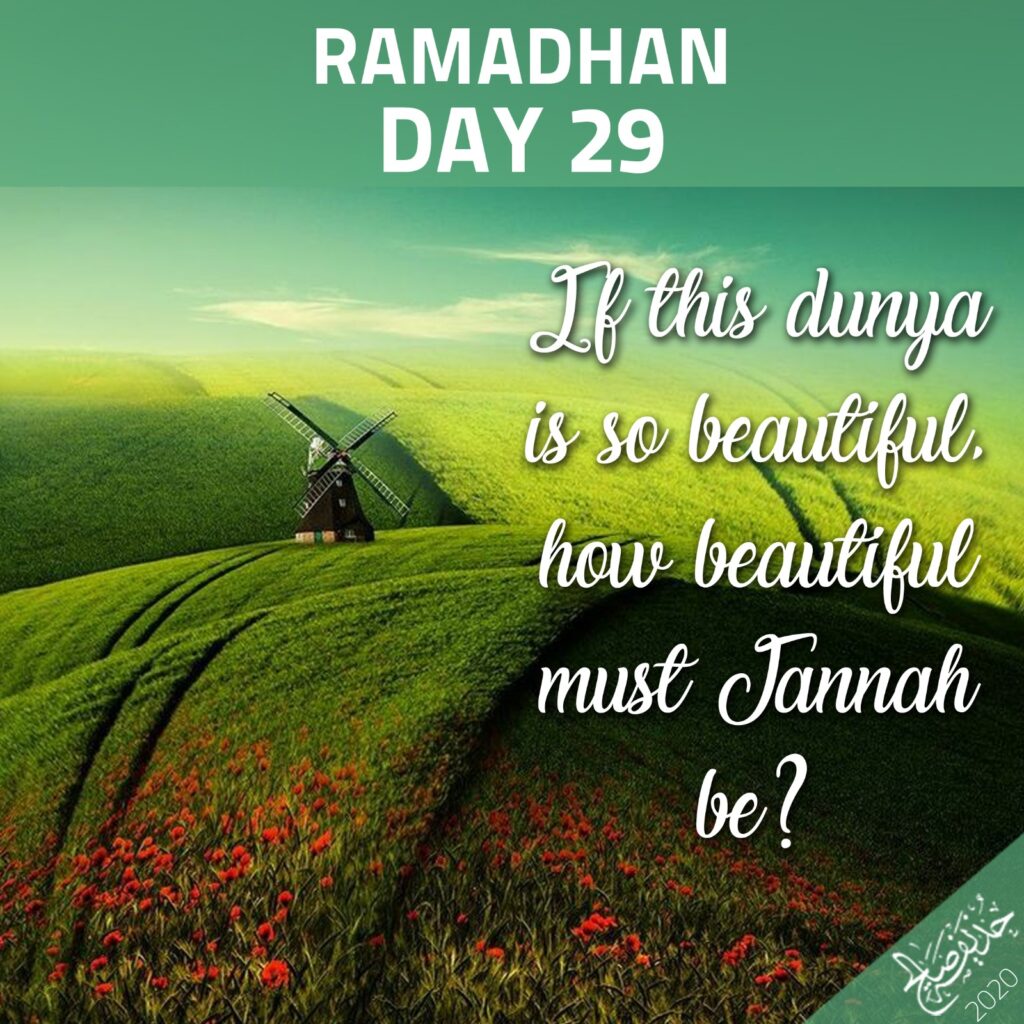
إِنَّ فِي خَلْقِ السَّمَاوَاتِ وَالْأَرْضِ وَاخْتِلَافِ اللَّيْلِ وَالنَّهَارِ لَآيَاتٍ لِأُولِي الْأَلْبَابِ
Verily, in the creation of the heavens and the earth, and in the alternation of night and day, there are signs for the people of wisdom.
[Qur’ān, Sūrah Āl-ʿImrān, verse 190]
In the creation of the heavens and the earth are great signs of Allāh ﷻ. All those divinely created beings and things in the heavens and the earth are included. ‘The heavens’ is inclusive of all heights and ‘the earth’ covers all lows.
Ḥaḍrat ʿĀishah رضي الله عنها narrates that the Nabī ﷺ said to her, ‘Allow me to worship my Lord’. Nabī ﷺ rose from his bed, made ablution and stood up for Ṣalāh. Whilst in qiyām, Nabī ﷺ wept so much that his tears trickled down his ﷺ blessed chest. Nabī ﷺ went into rukūʿ and there too wept and in sajdah Nabī ﷺ wept also. Nabī ﷺ raised his head and continued weeping till it was morning.
Ḥaḍrat Bilāl رضي الله عنه came to inform Nabī ﷺ that it’s time for Fajr. Ḥaḍrat Bilāl asked Nabī ﷺ, ‘My Master ﷺ, why do you weep like that? Isn’t it that Allāh ﷻ has forgiven all your past and future sins?’ Nabī ﷺ replied, ‘Should I not continue to be a grateful servant of Allāh? And in offering this gratitude of mine, why should I not shed tears, especially tonight when Allāh has revealed this verse to me, ‘Verily, in the creation of the heavens and the earth, and in the alternation of night and day, there are signs for the people of wisdom.’ – After that Nabī ﷺ said, ‘Ruined is the person who recites these verses but fails to deliberate therein.’
Thinking about the creation inevitably leads one to realise the presence of the Creator. Look at the enormous expanse of the sky above us with the sun, the moon, the planets and stars bound with the solar and lunar system working so well for thousands of years without being serviced or refurbished.Then, on this earth, the mountains, rivers, trees, animals, the air that circulates and the rain that falls. This act of knowing and realising that there is a superior being in control of all this and more is a great act of worship.
For this reason, Imām Ḥasan al-Baṣrī رحمه الله said, ‘An hour spent in thinking about the signs of Allāh is better and far more useful than a whole night standing in worship.’
[Maʿāriful Qur’ān, Volume 2]

There is a very popular Urdu couplet by Poet Ḥālī which states:
خدا نے آج تک اس قوم کی حالت نہیں بدلی
نہ ہو جس کو خیال آپ اپنی حالت کے بدلنے کا
To this day, God has never changed the condition of a people
Who have no plan of changing their condition themselves.
For a person who has no intention of correcting himself, there is no promise of help and support from Allāh تعالى. Instead, this promise is valid under the condition that he himself thinks and does something about it:
وَ الَّذِينَ جَاهَدُوا فِينَا لَنَهْدِيَنَّهُمْ سُبُلَنَا
And those who strive for Us – We will surely guide them to Our paths.
[Qur’ān, Sūrah Al-ʿAnkabūt (29) verse 69]
The pathways of guidance from Allāh open up only when the urge to have such guidance is present.
Take our own existence and its countless blessings for example. These are not the outcome of our efforts, nor had we ever prayed that we are given such a presence with eyes, nose, ears and the rest of our perfect body. These are wonderful blessings – and we have them without having to ask for them – alḥamdulillāh.
However, the right to deserve blessings and to become worthy recipients of the fruits of the Divine promise cannot be received without making one’s effort to earn it.
Should a people keep waiting for Divine rewards without putting in due efforts and deeds, it would amount to nothing but self-deception.
[Maʿāriful Qur’ān, Volume 5]

